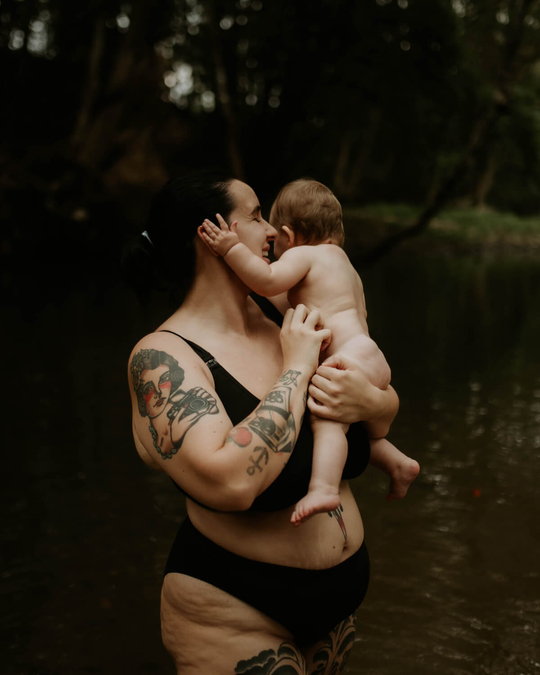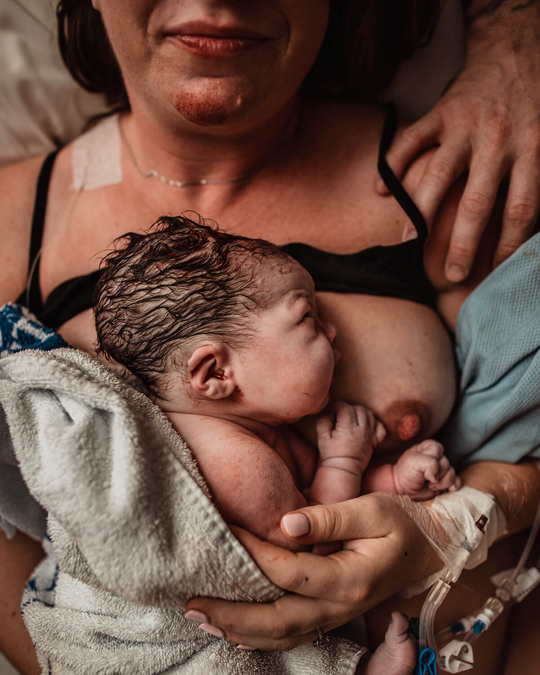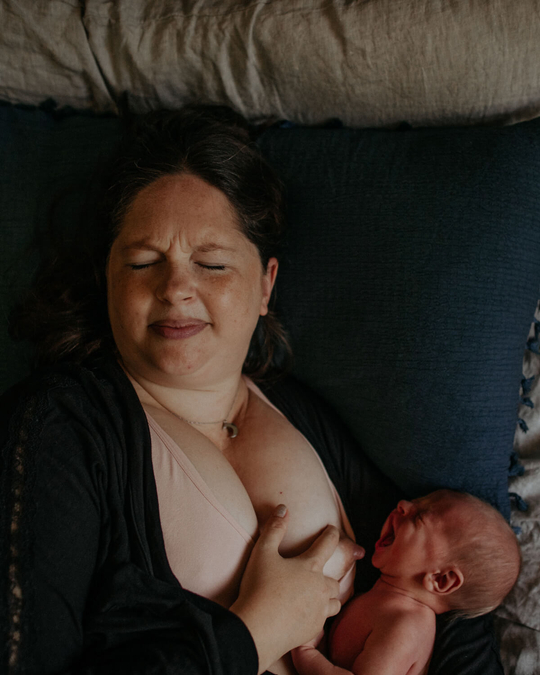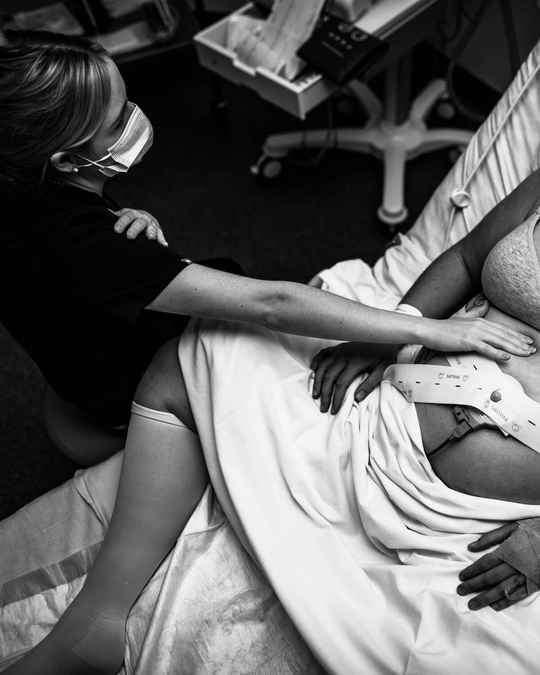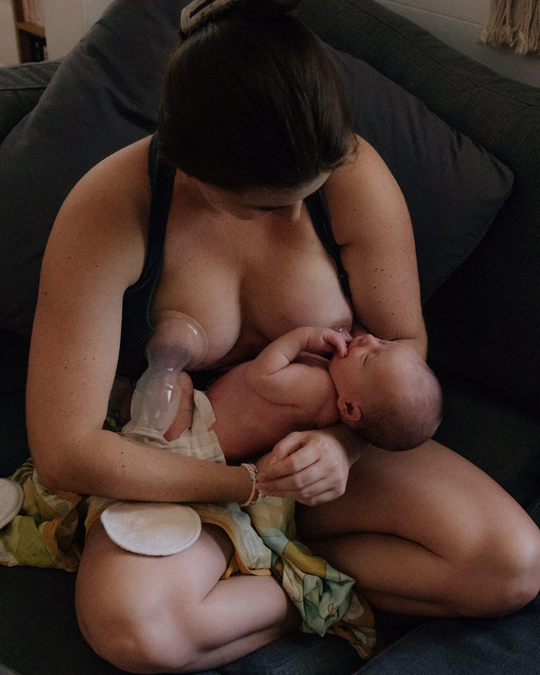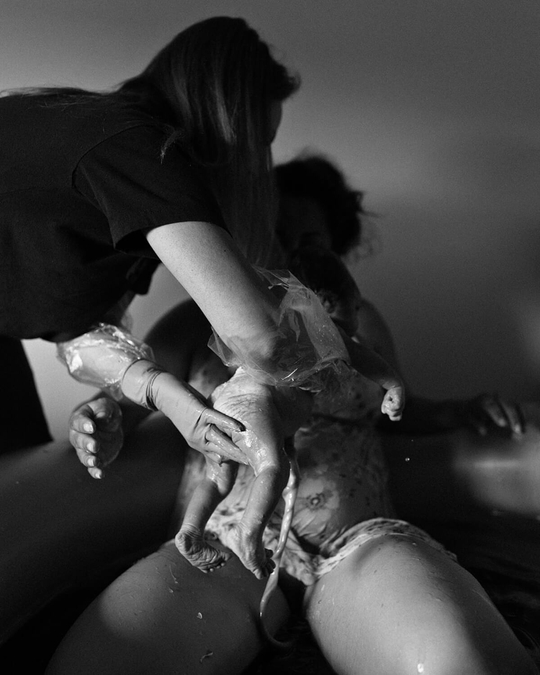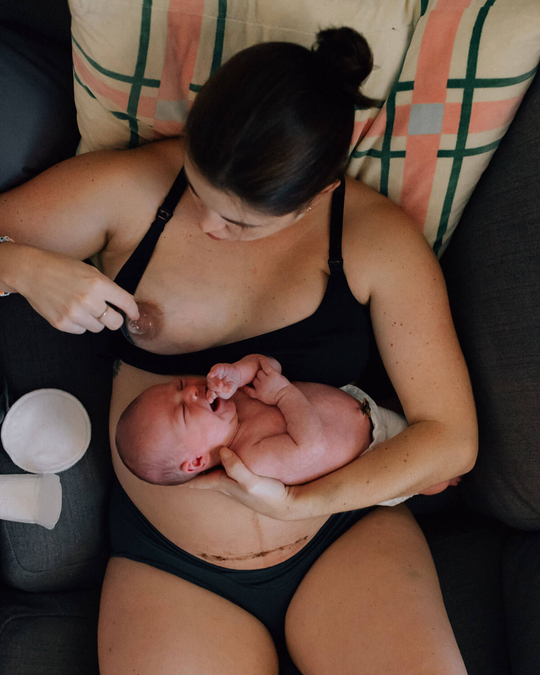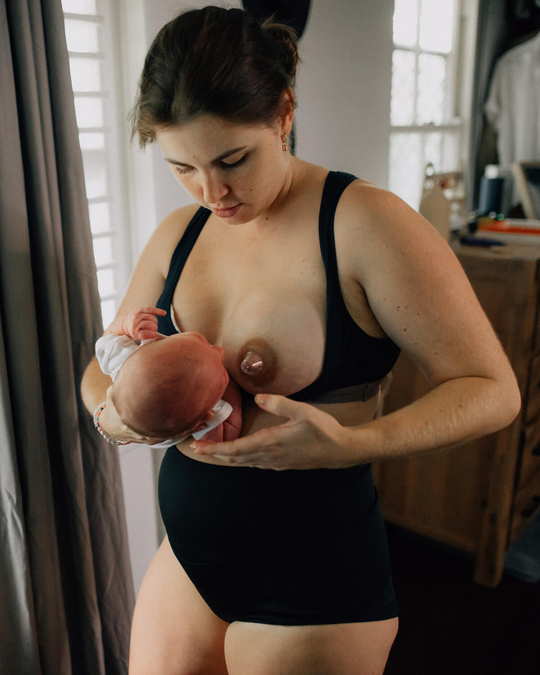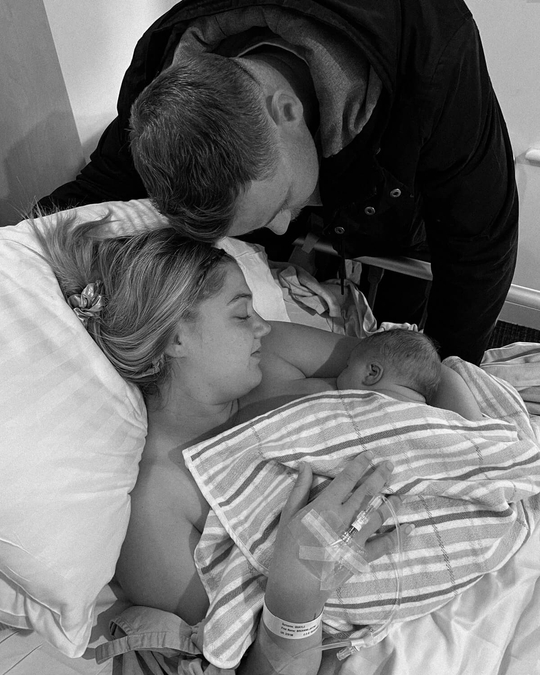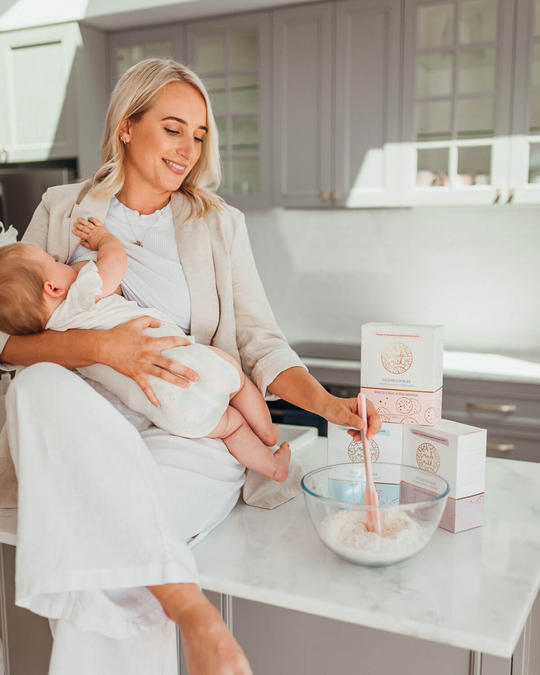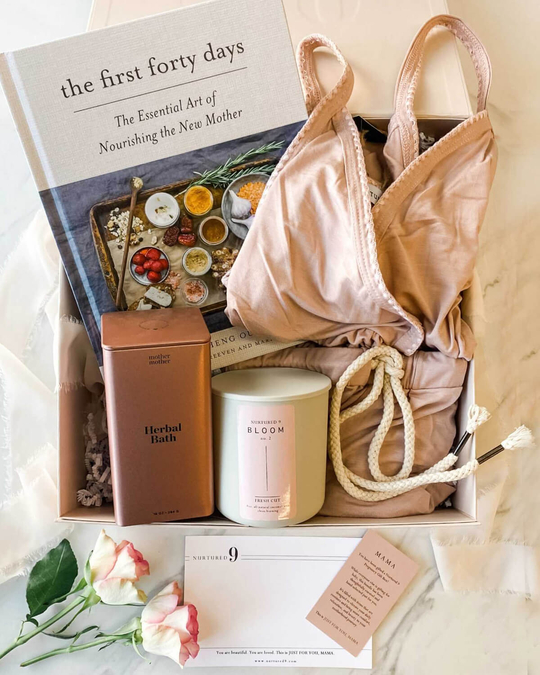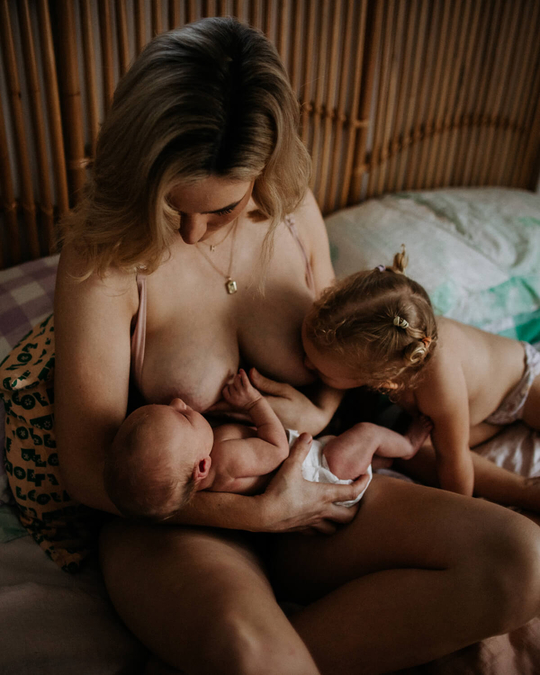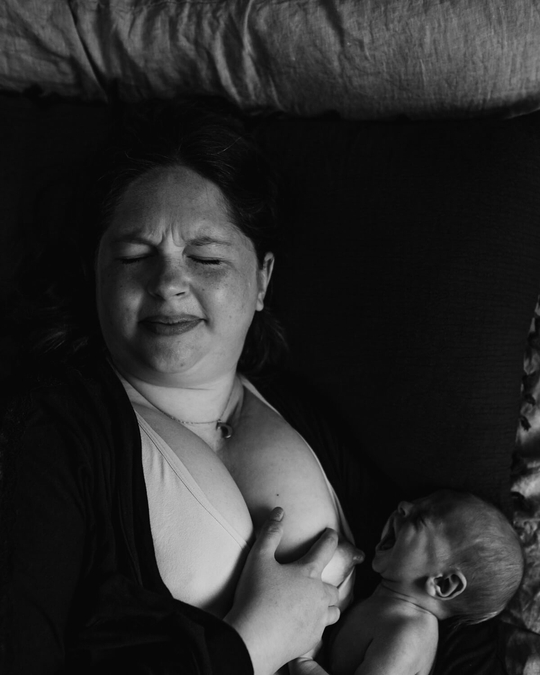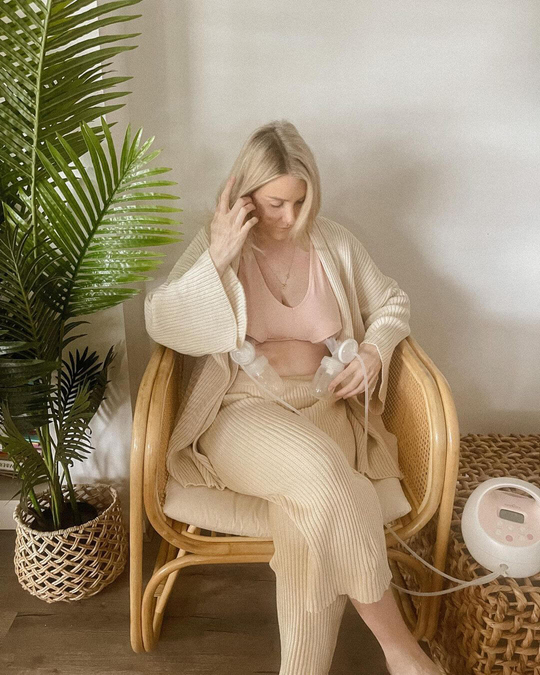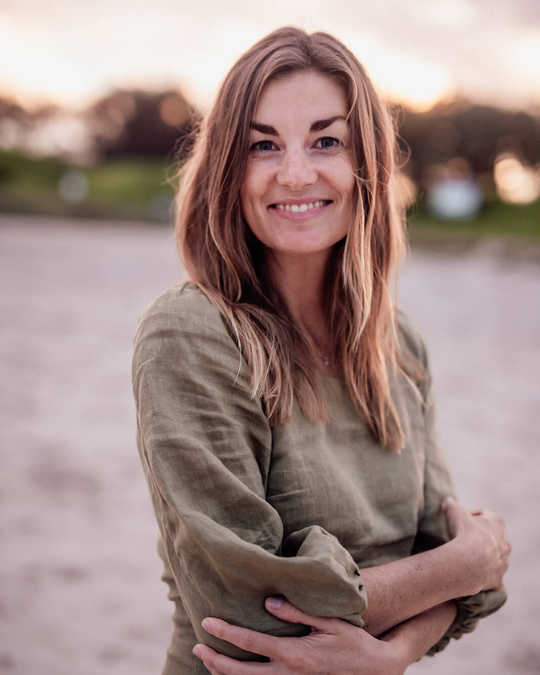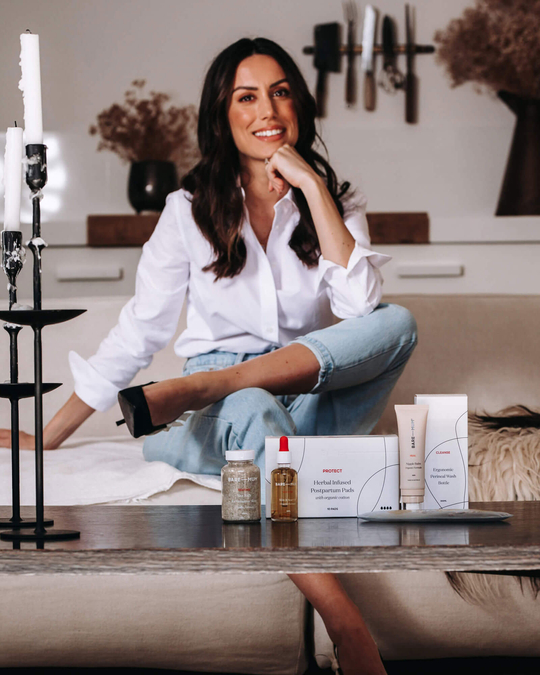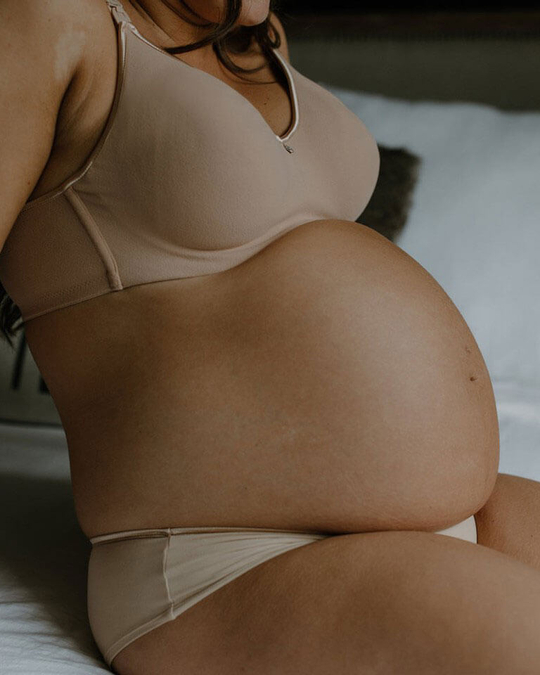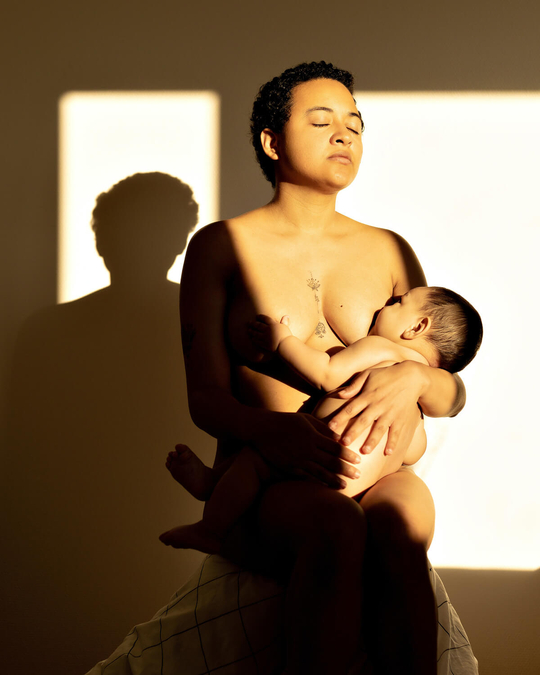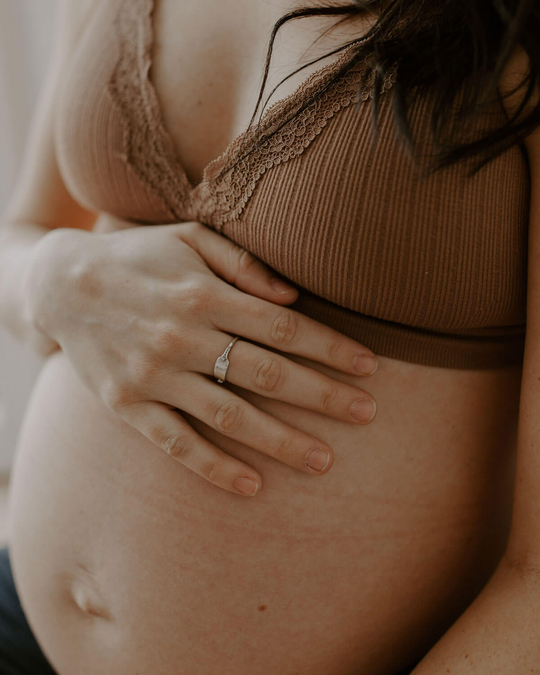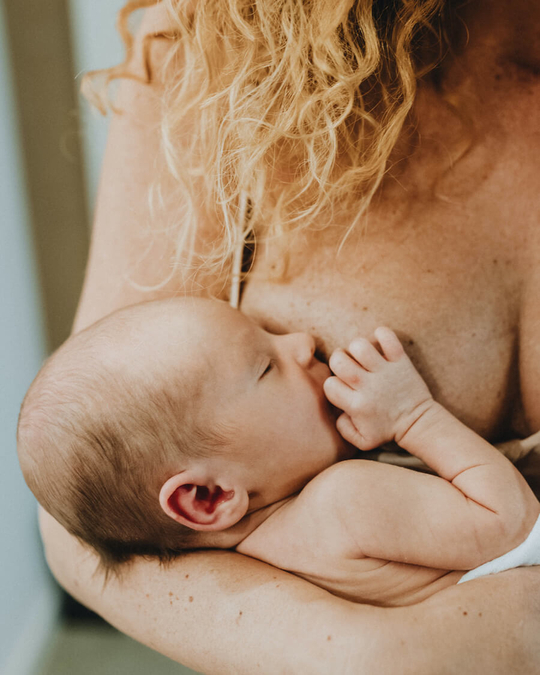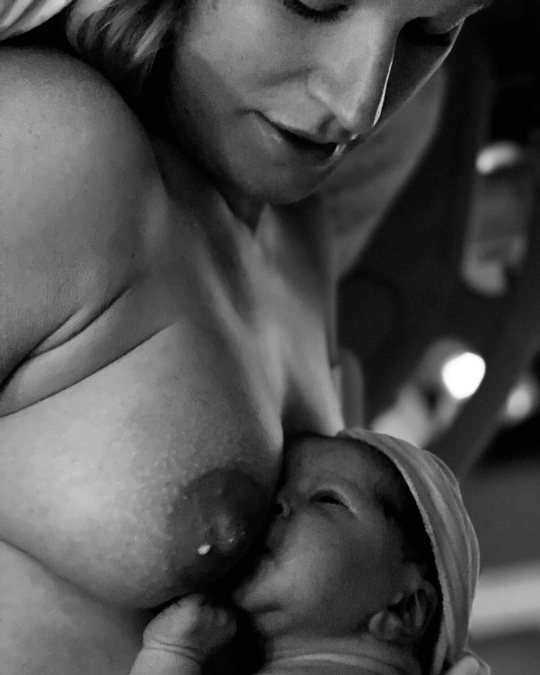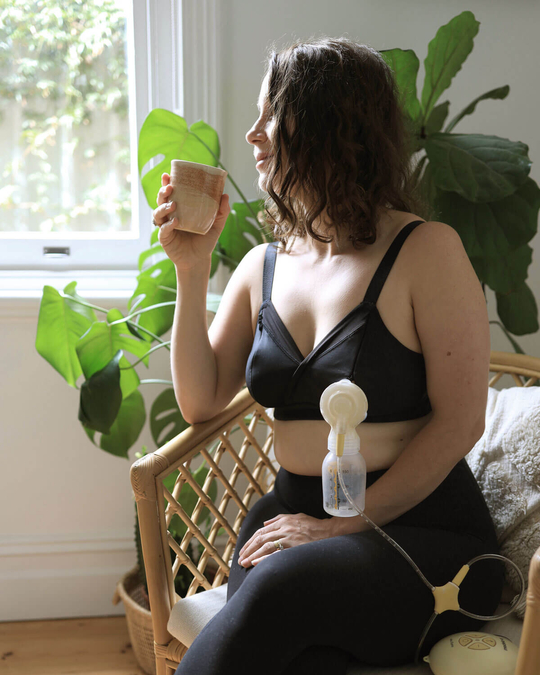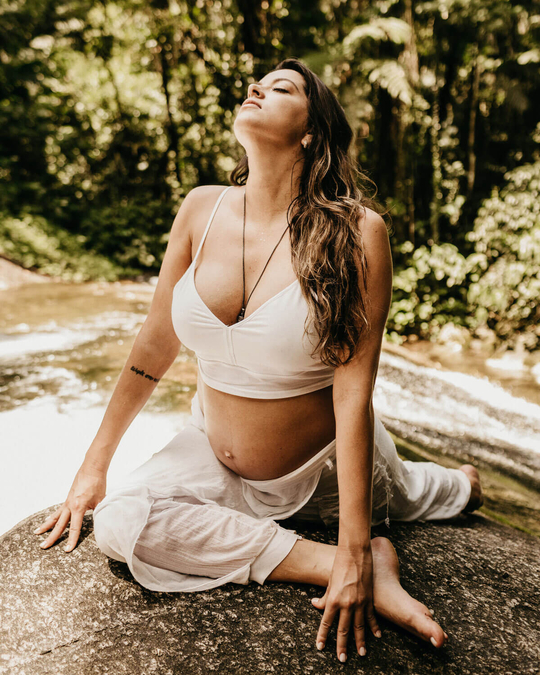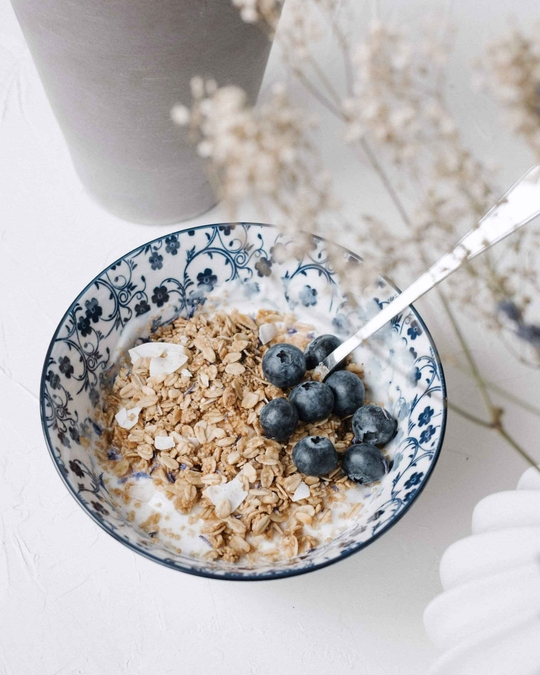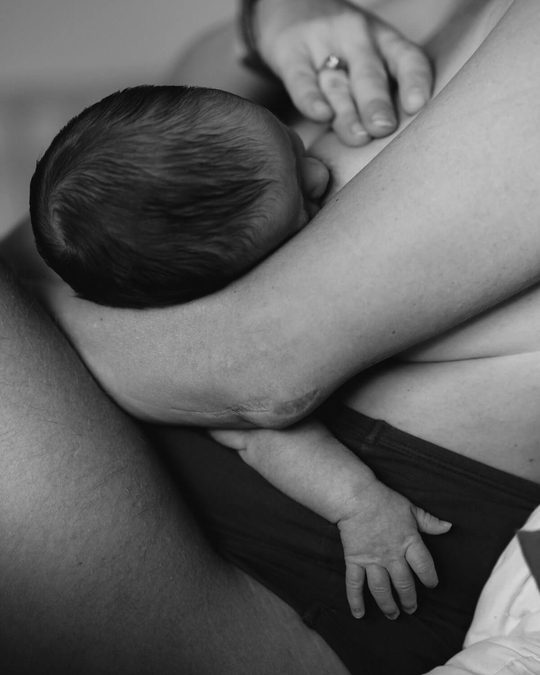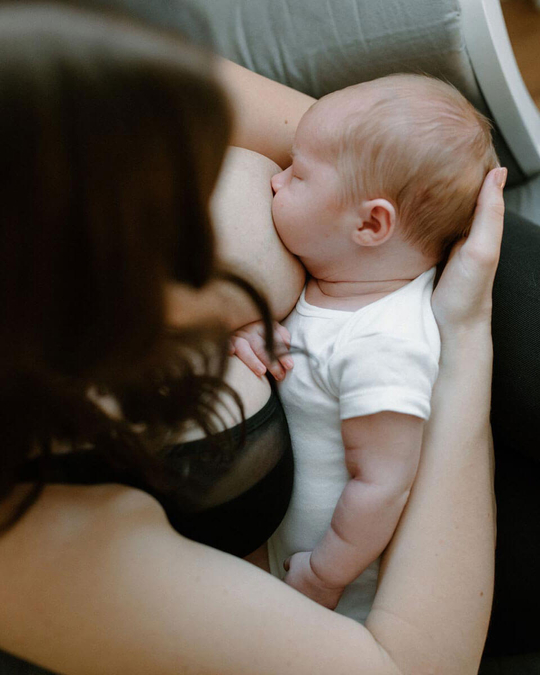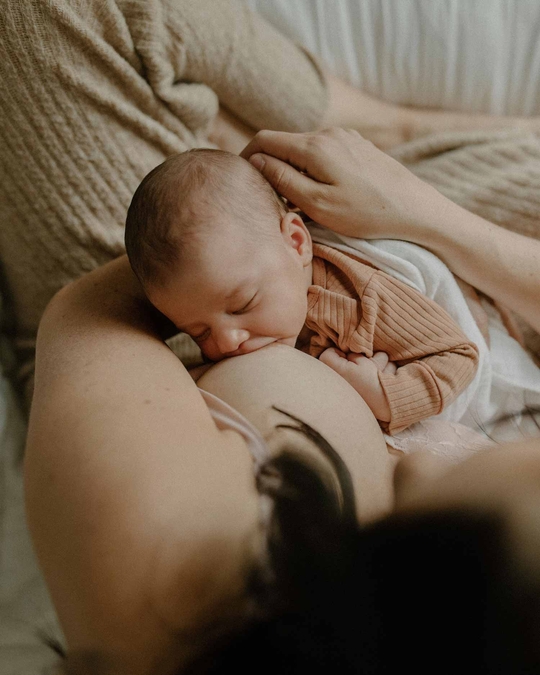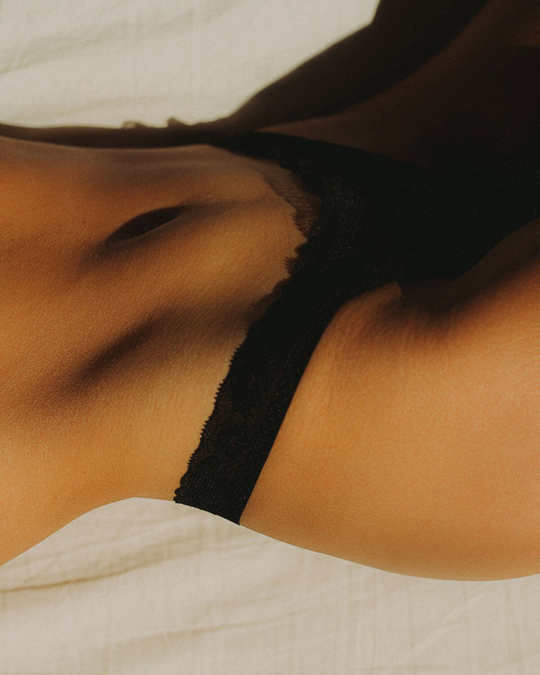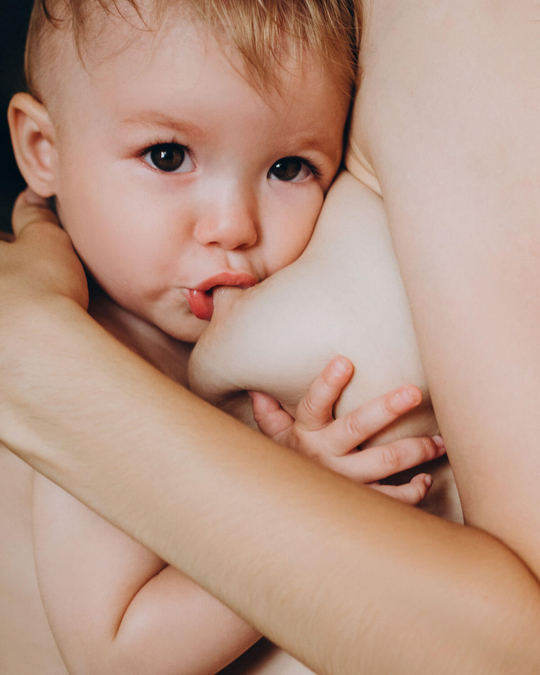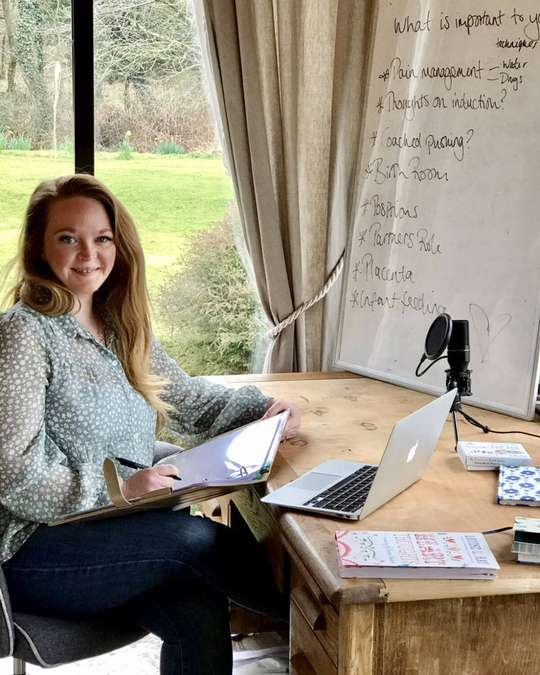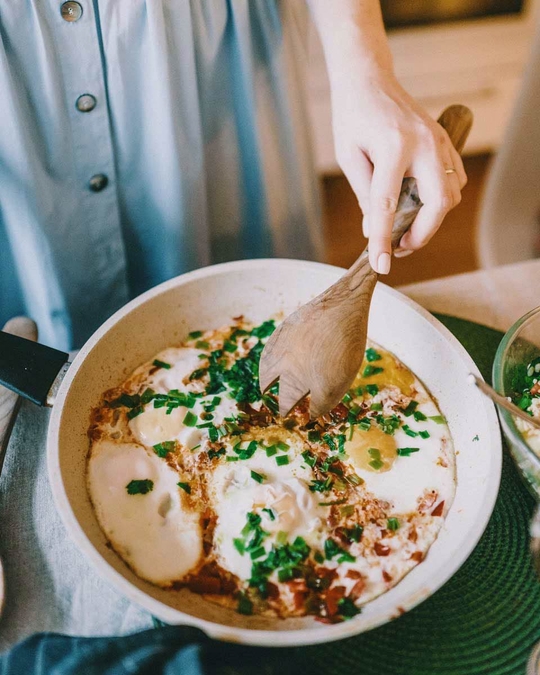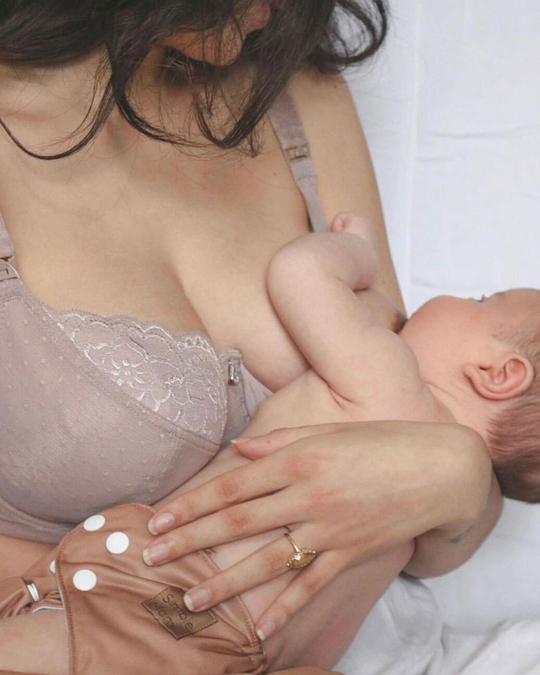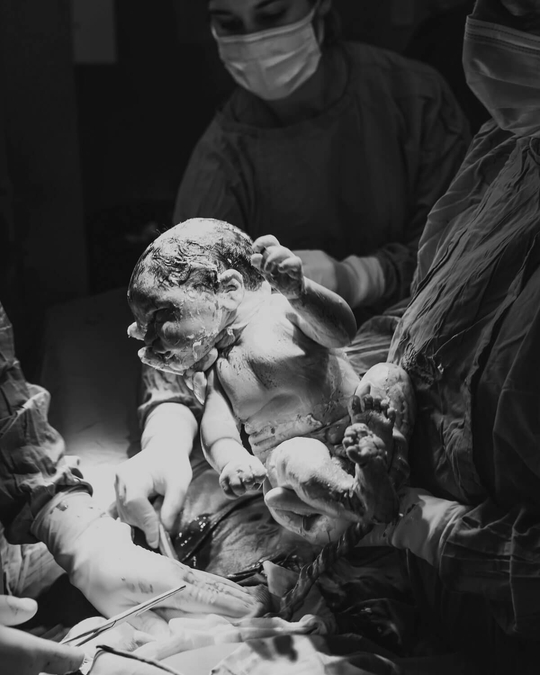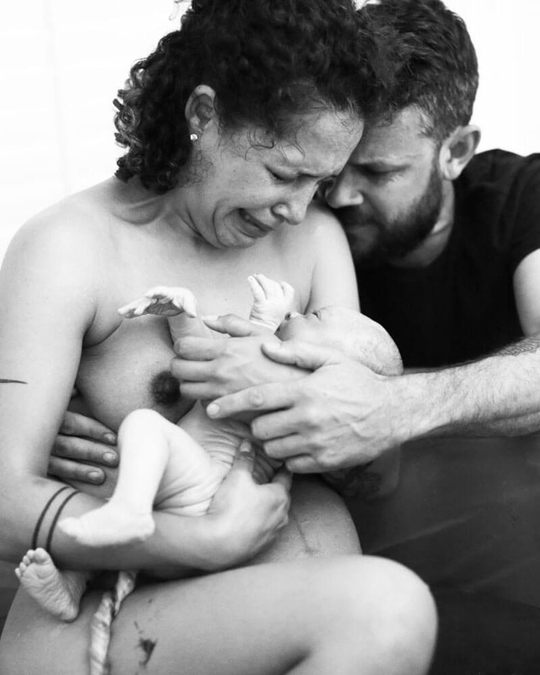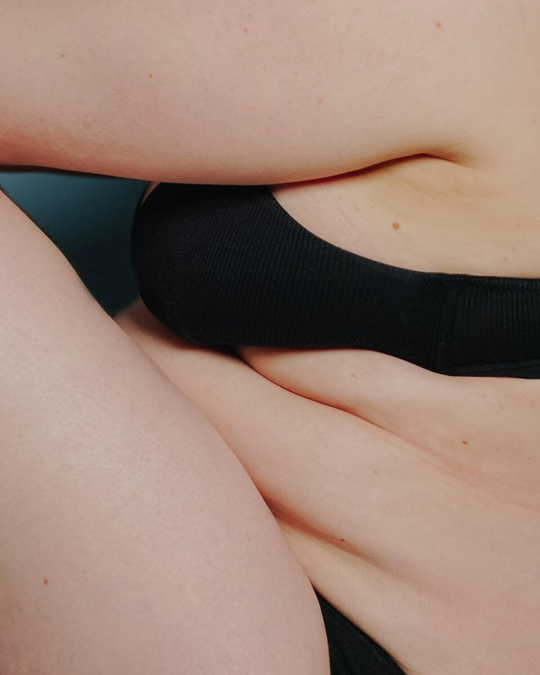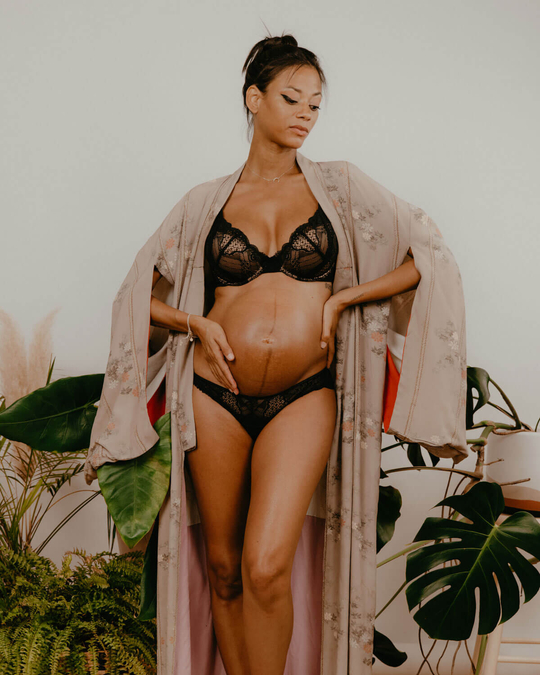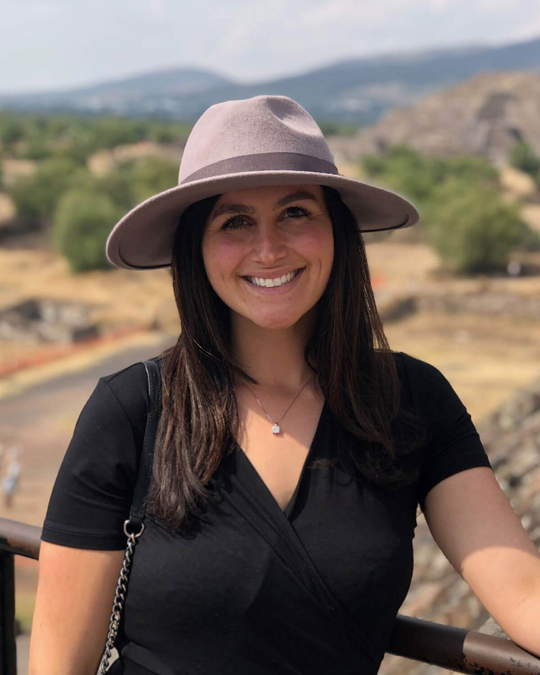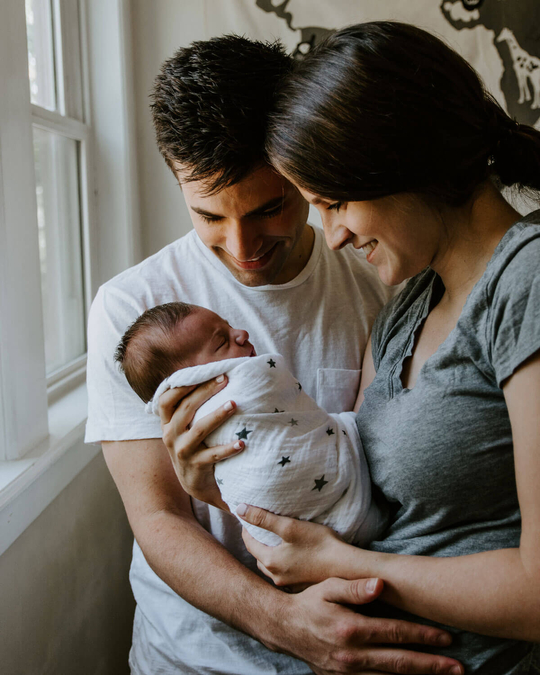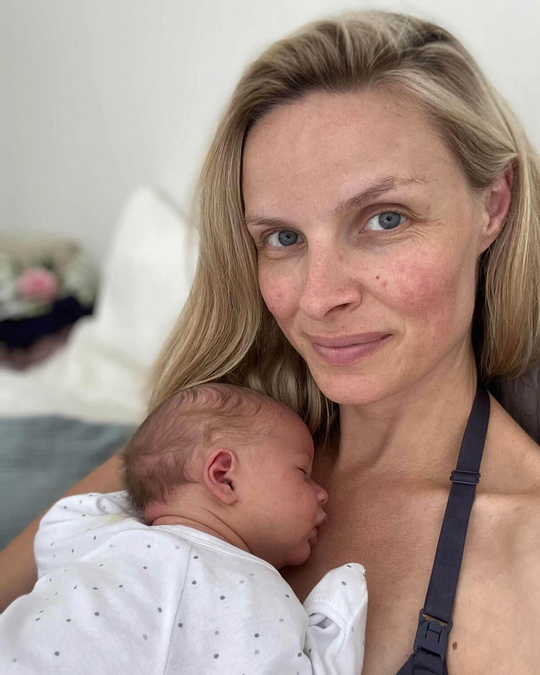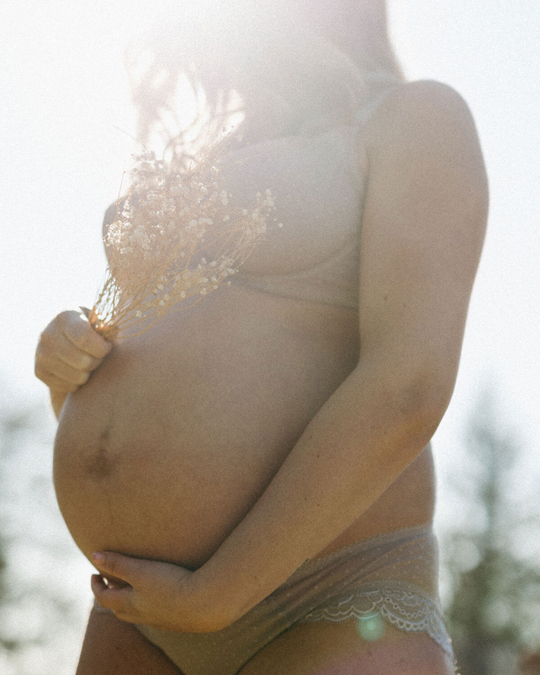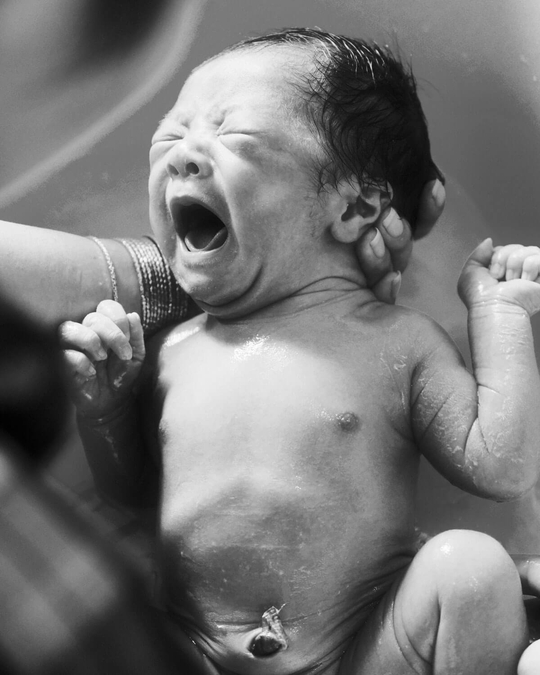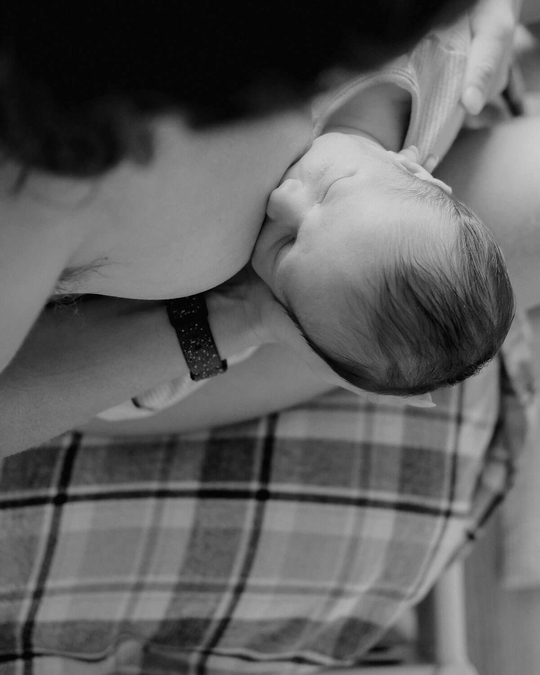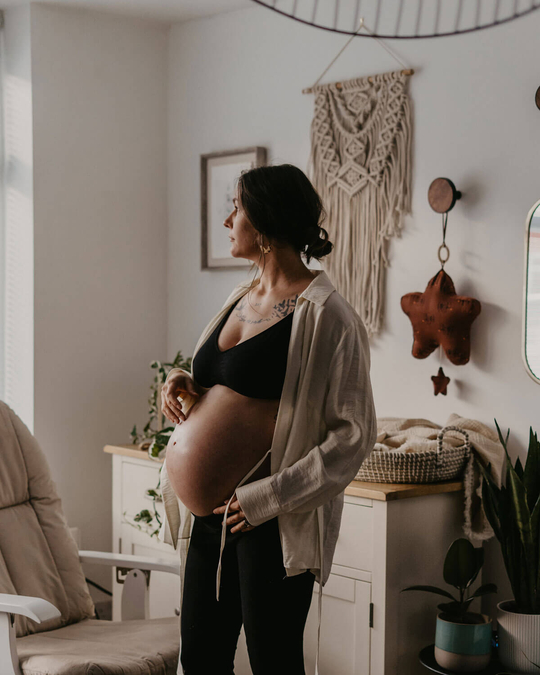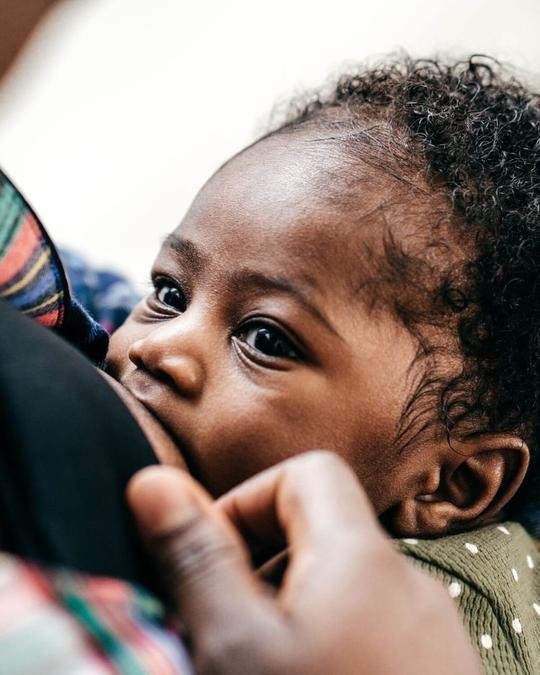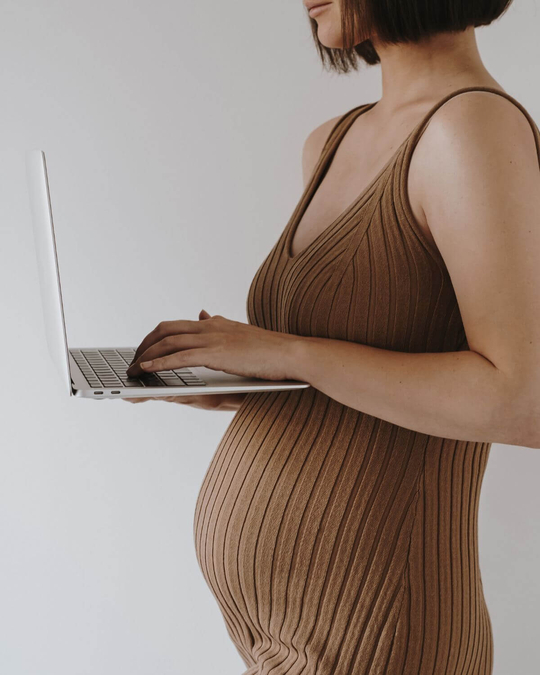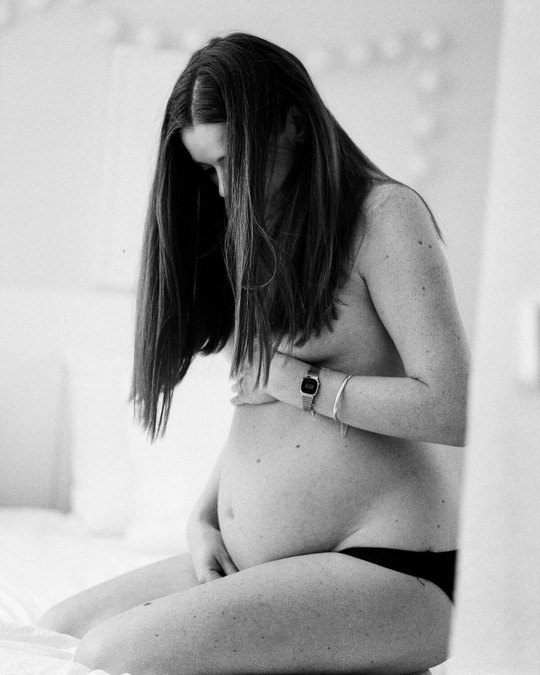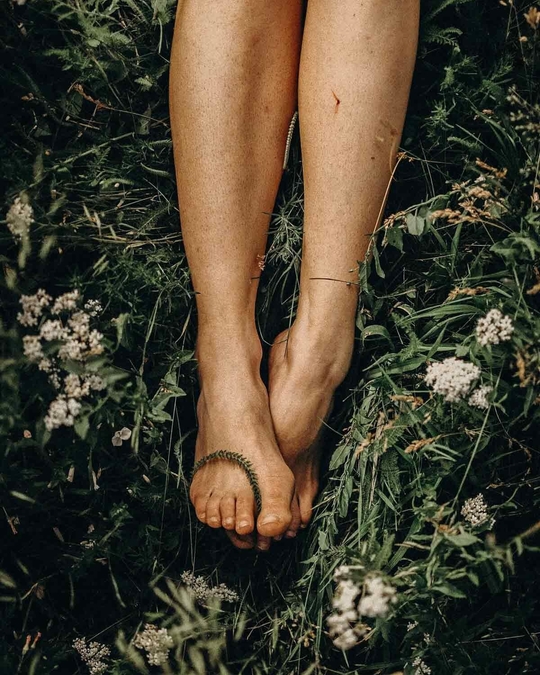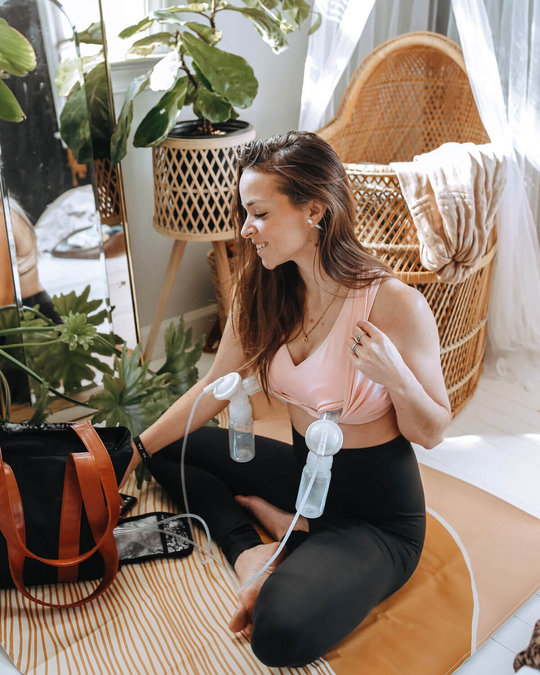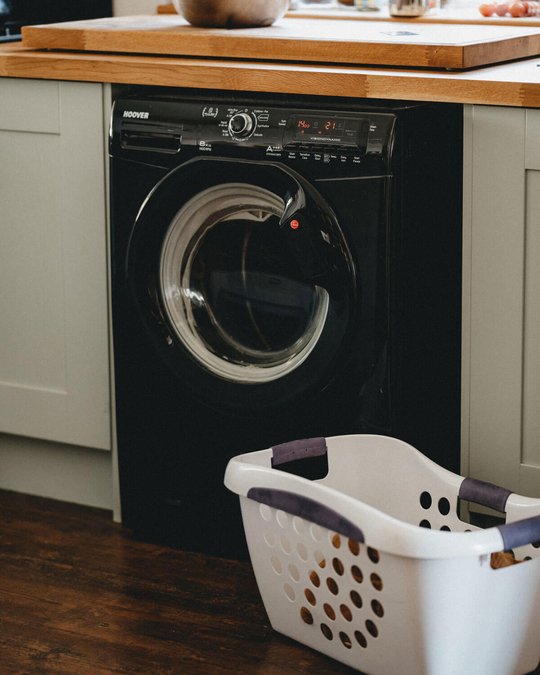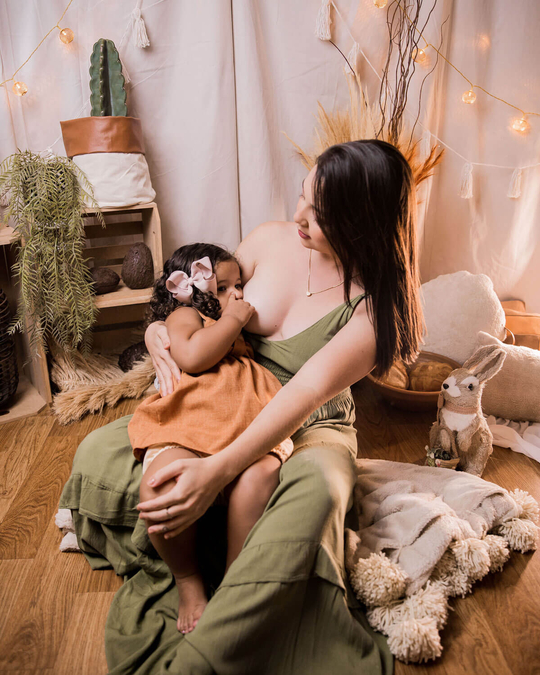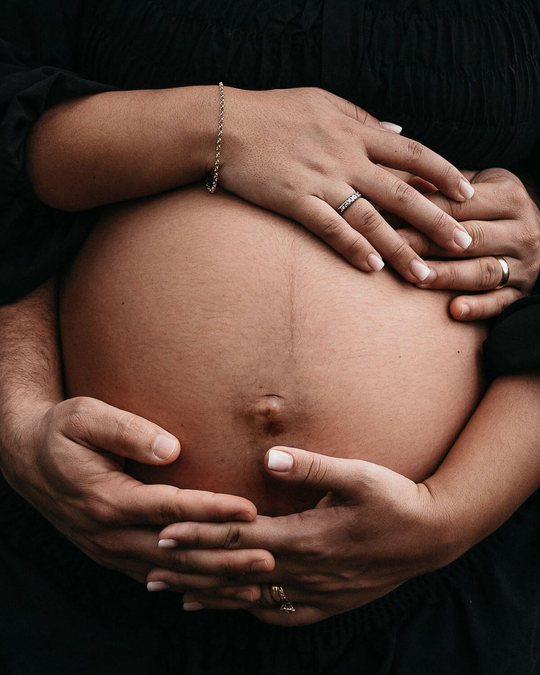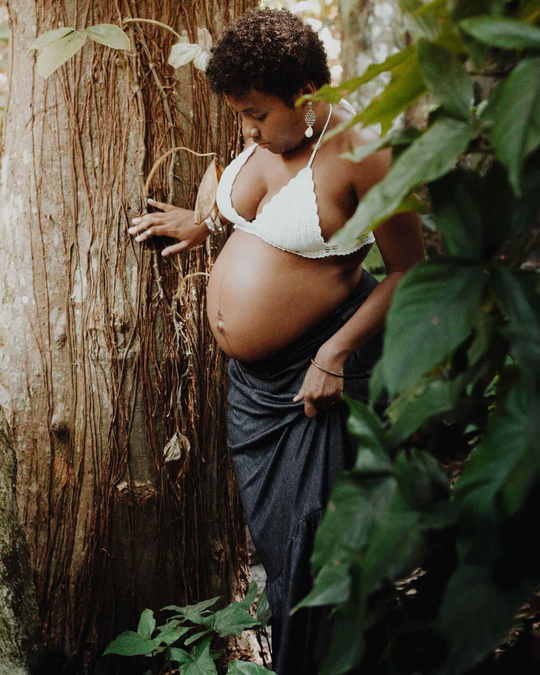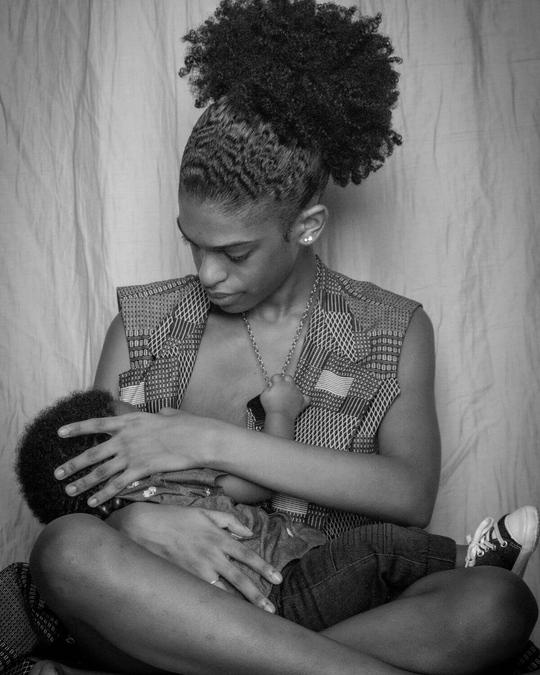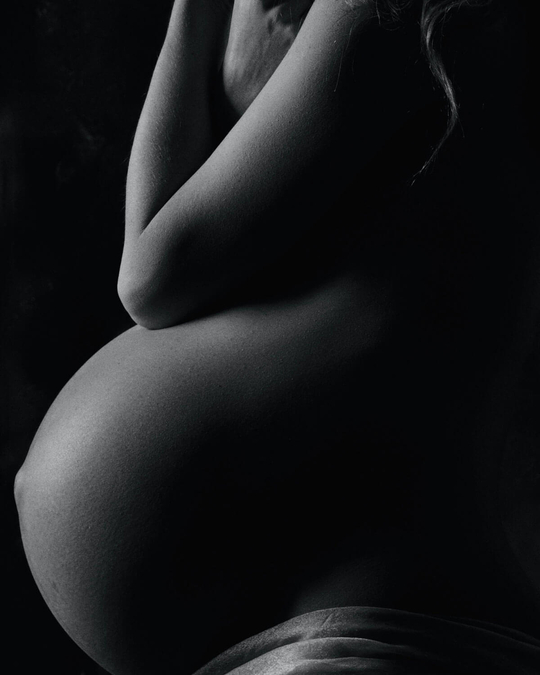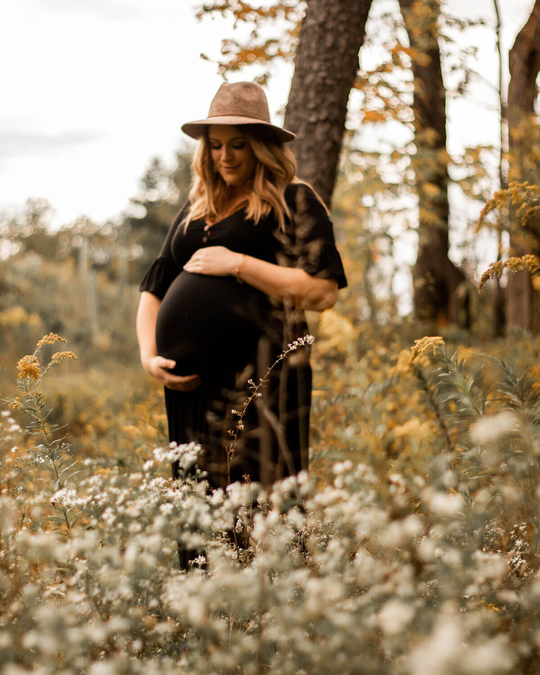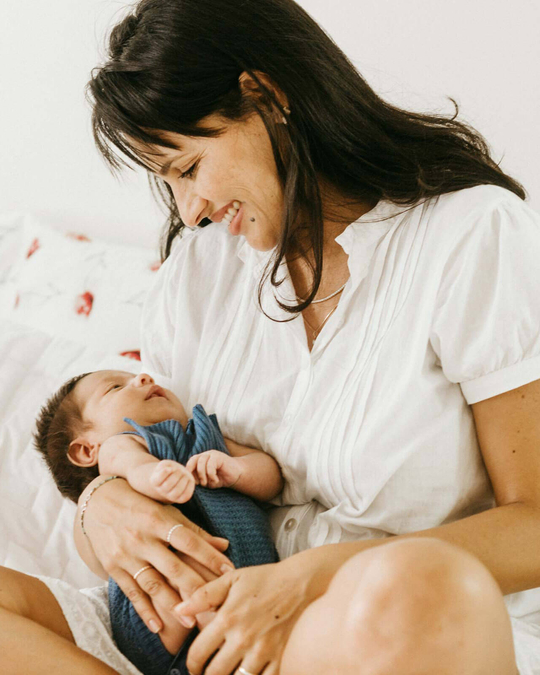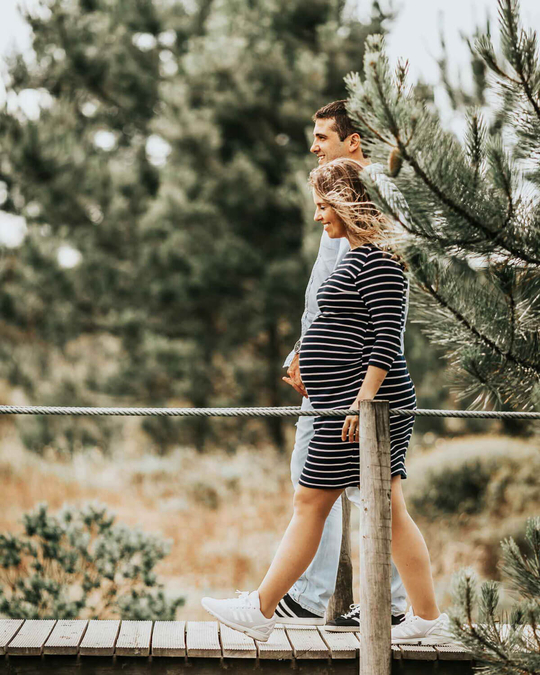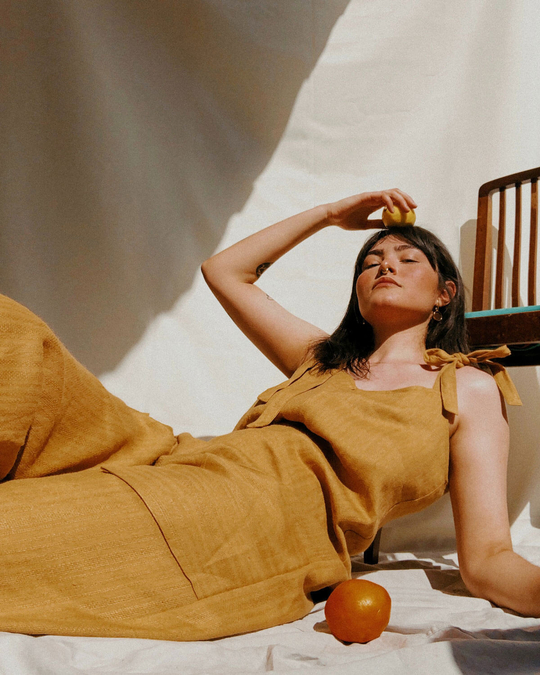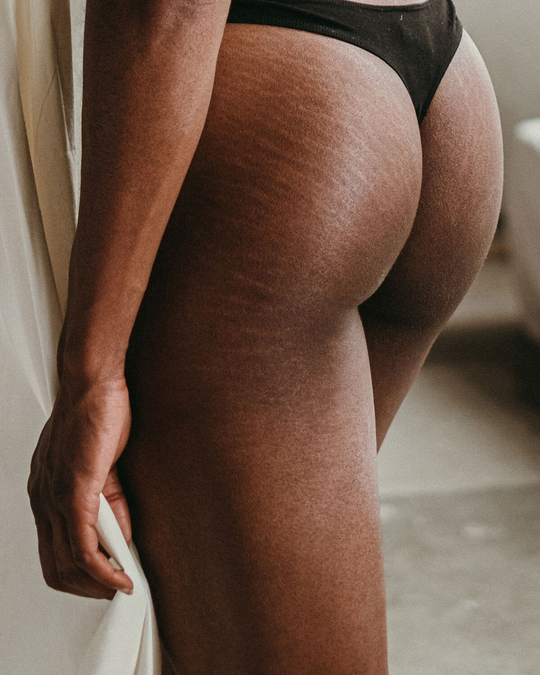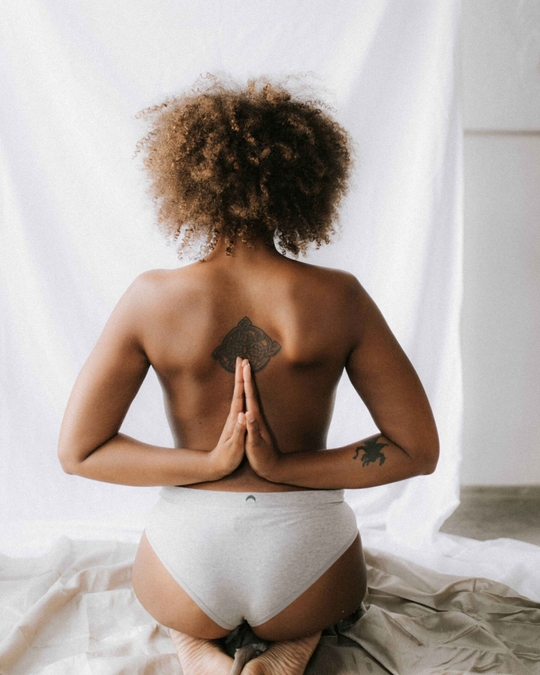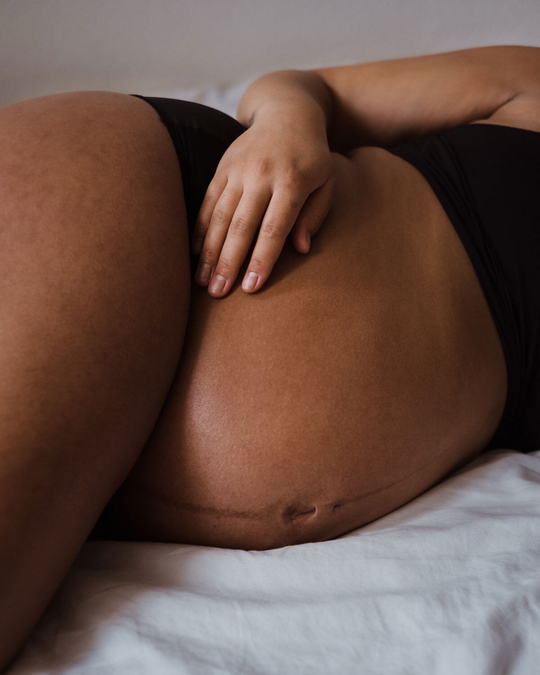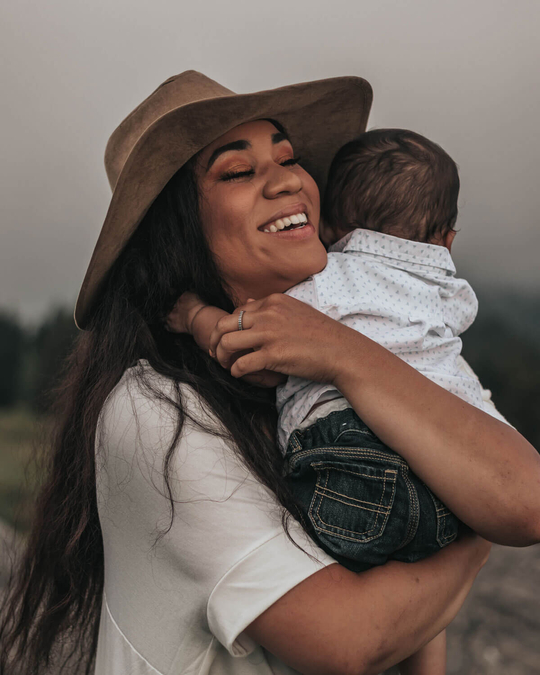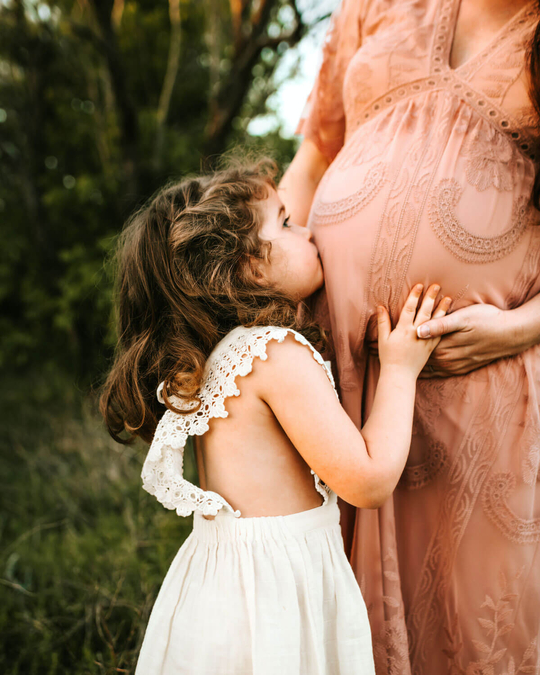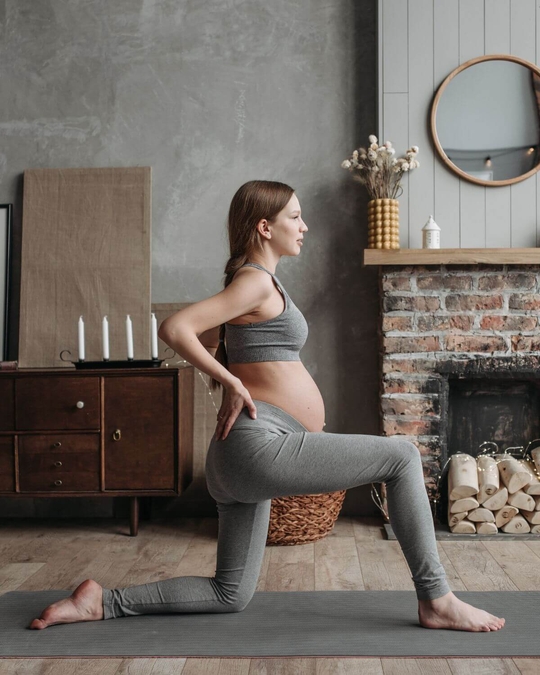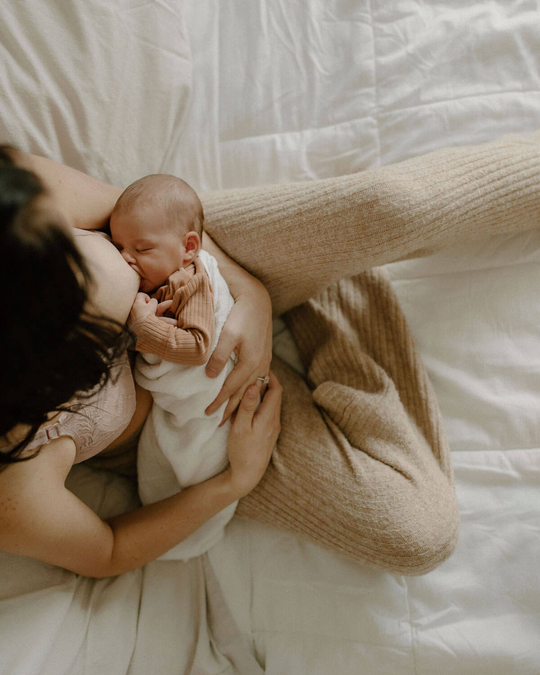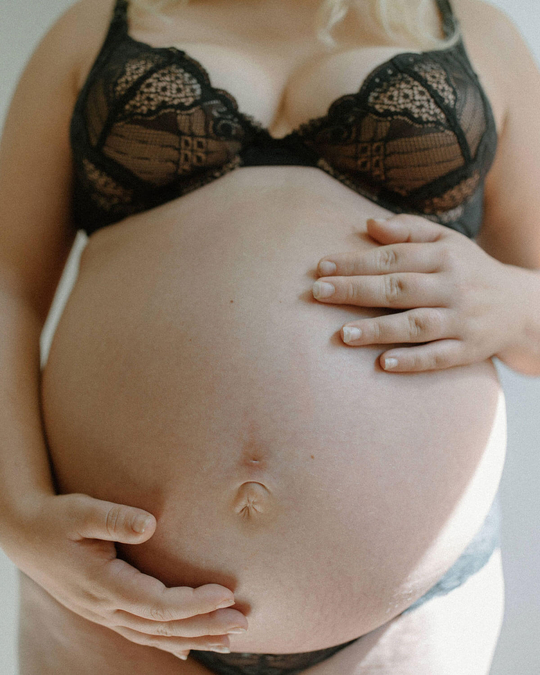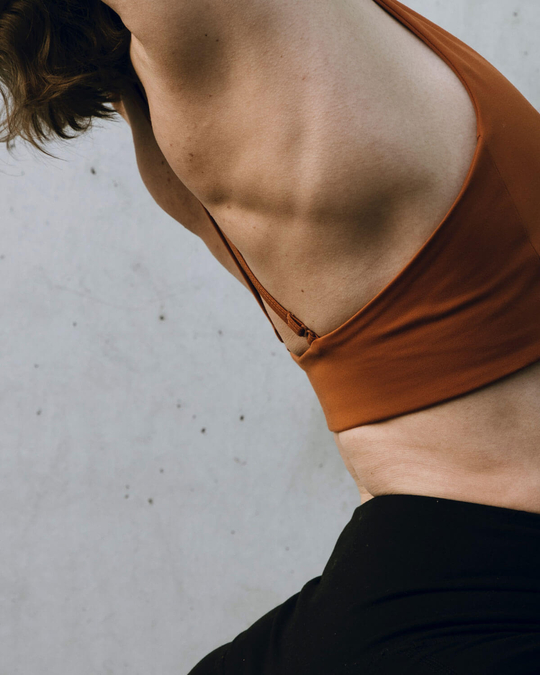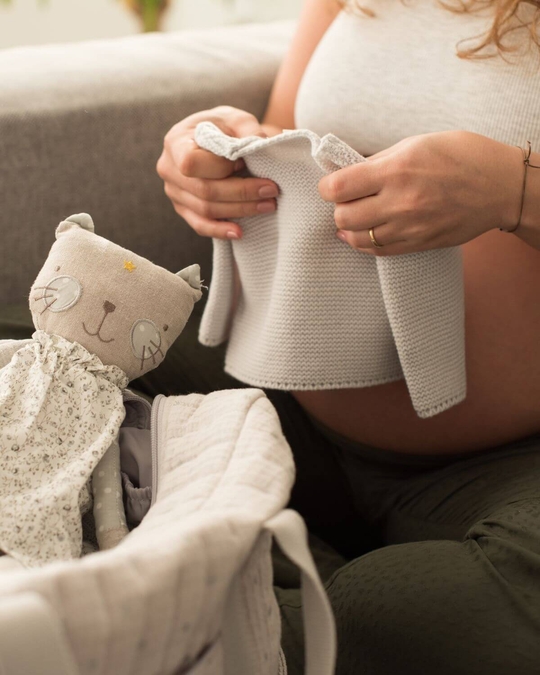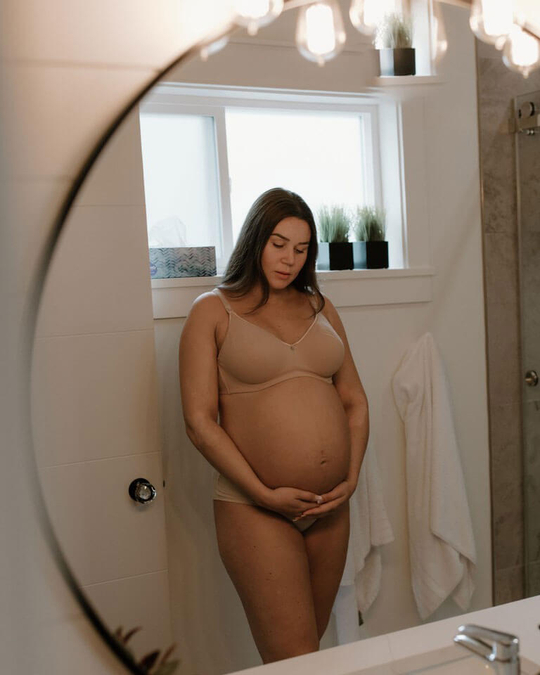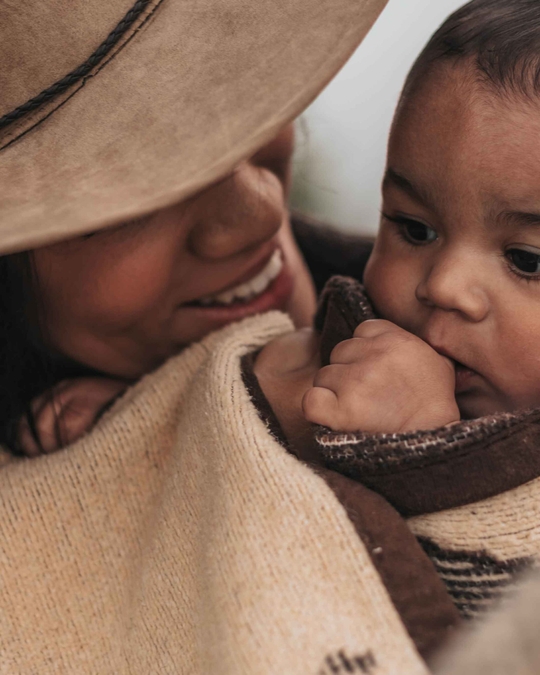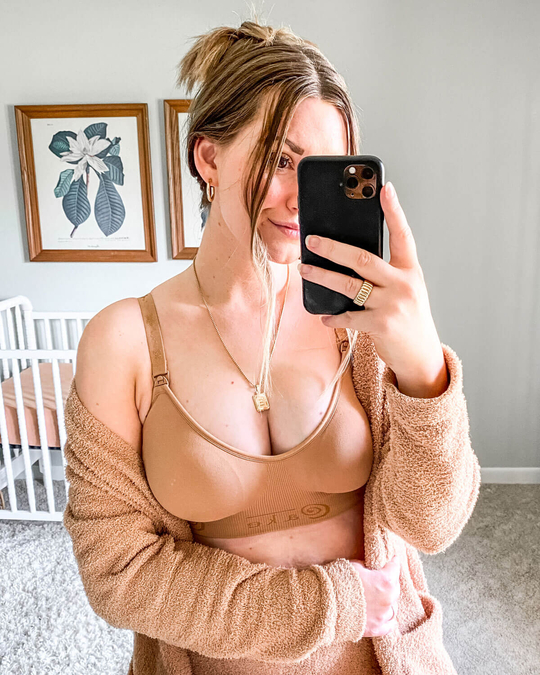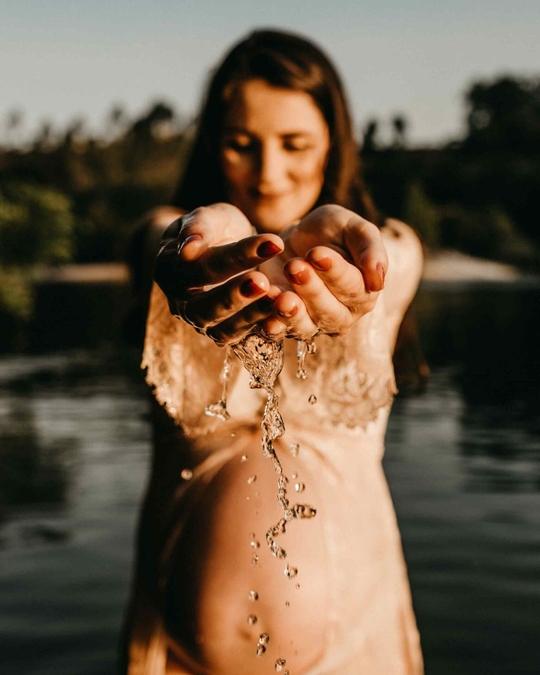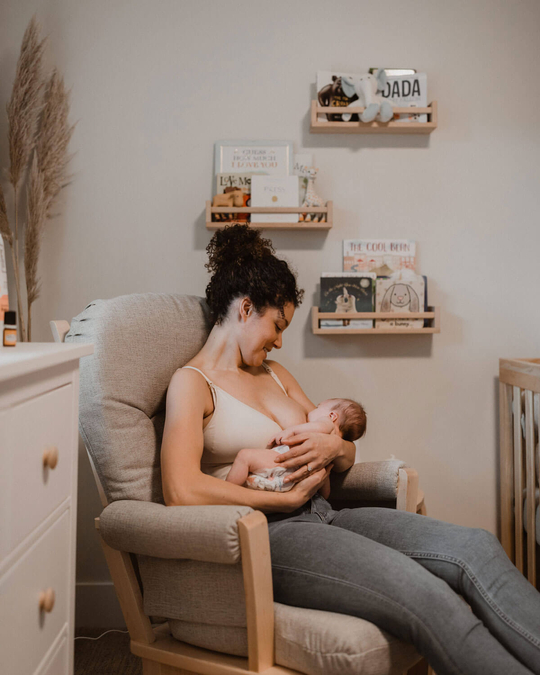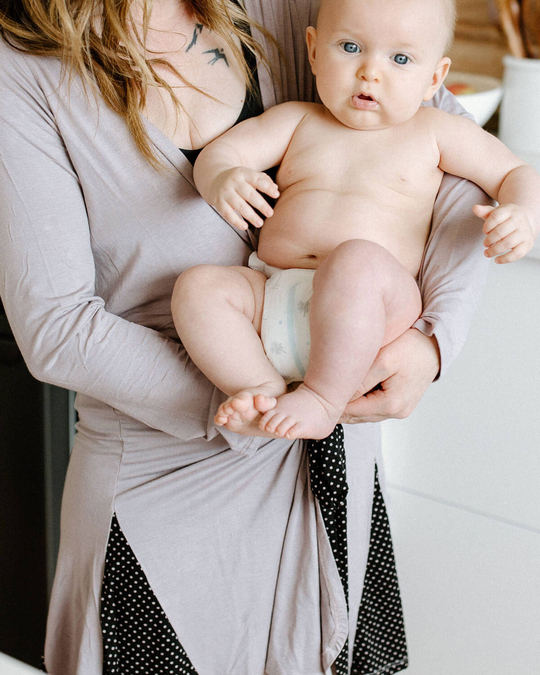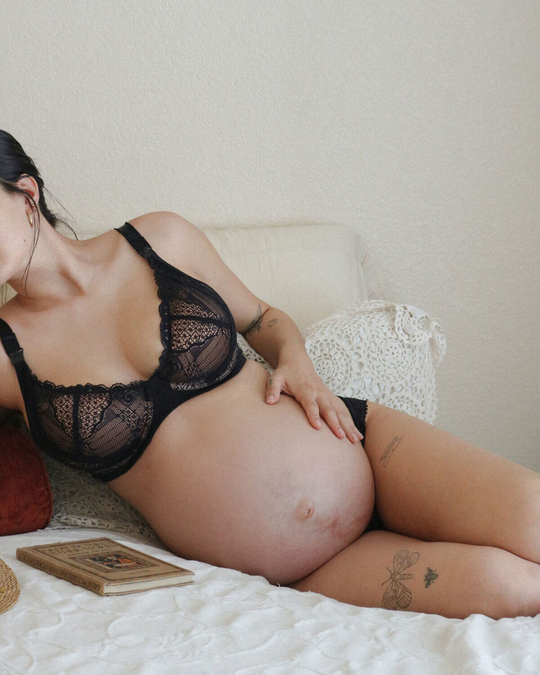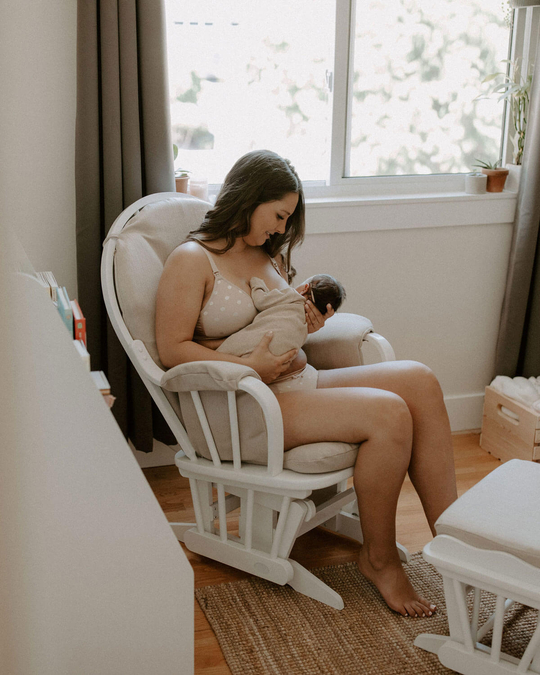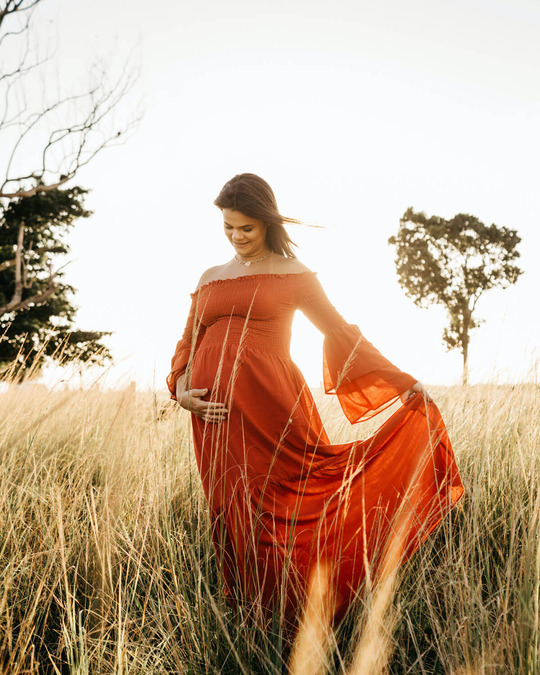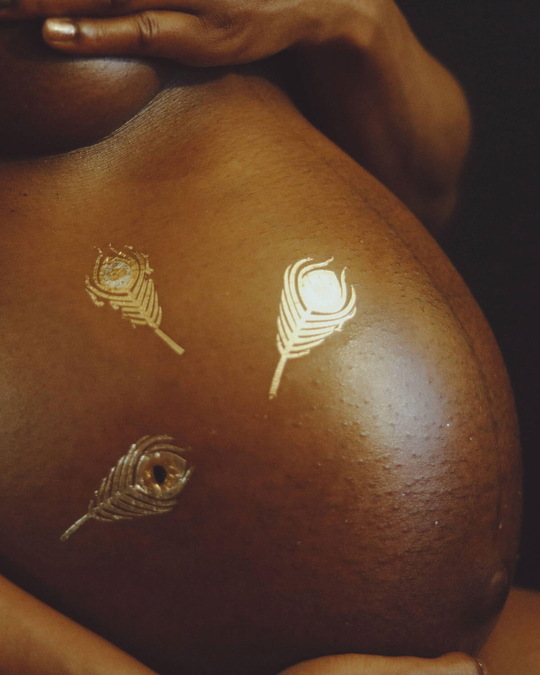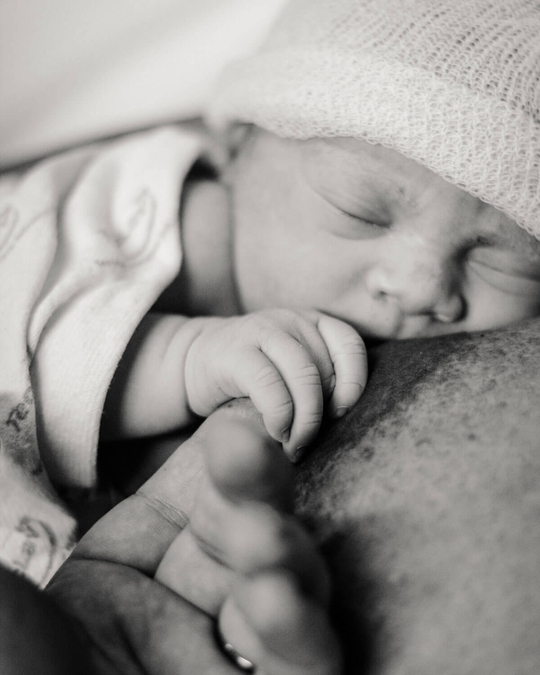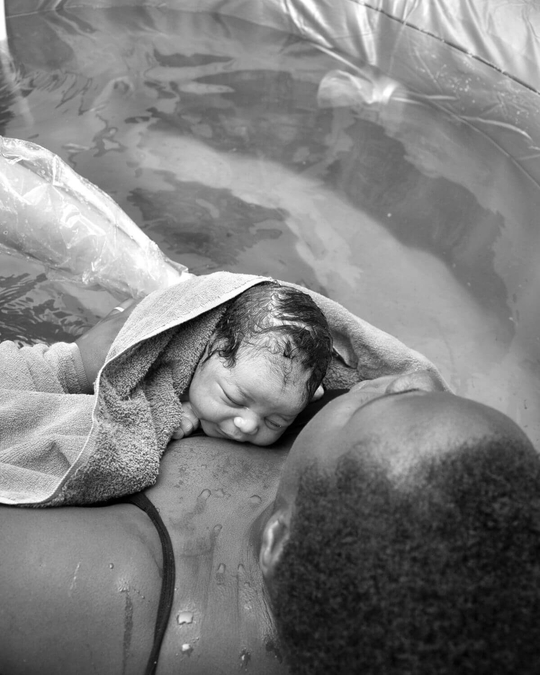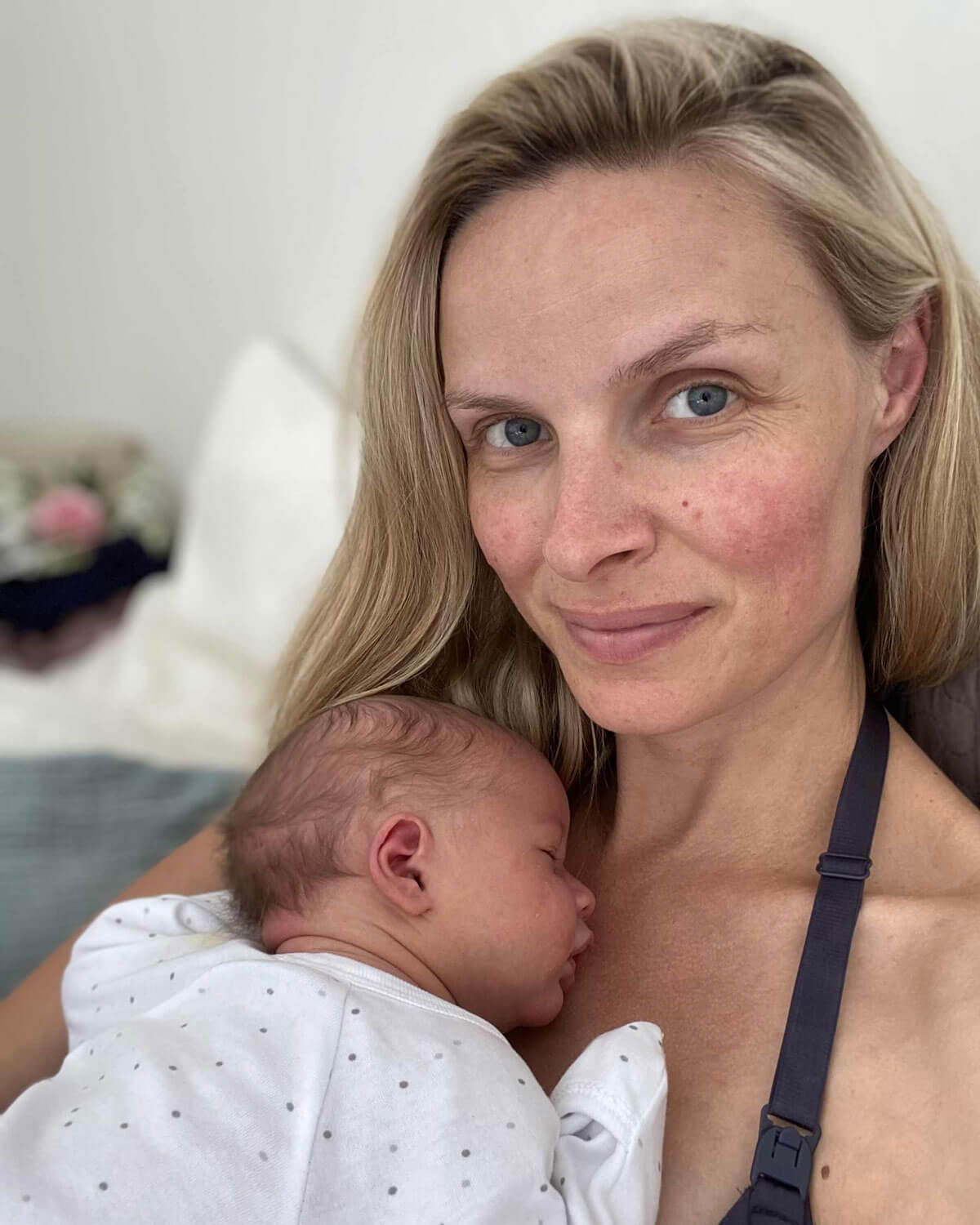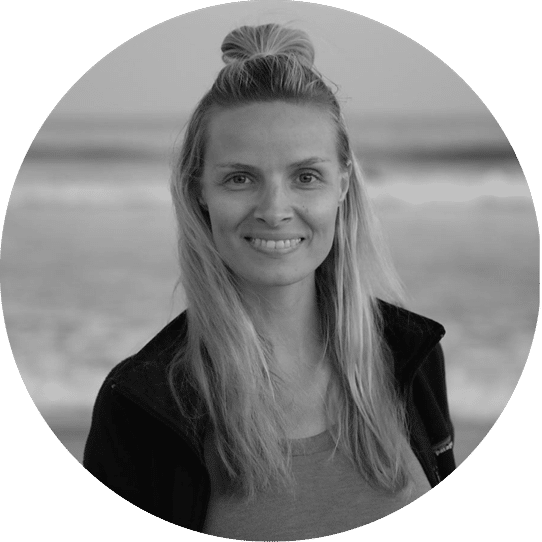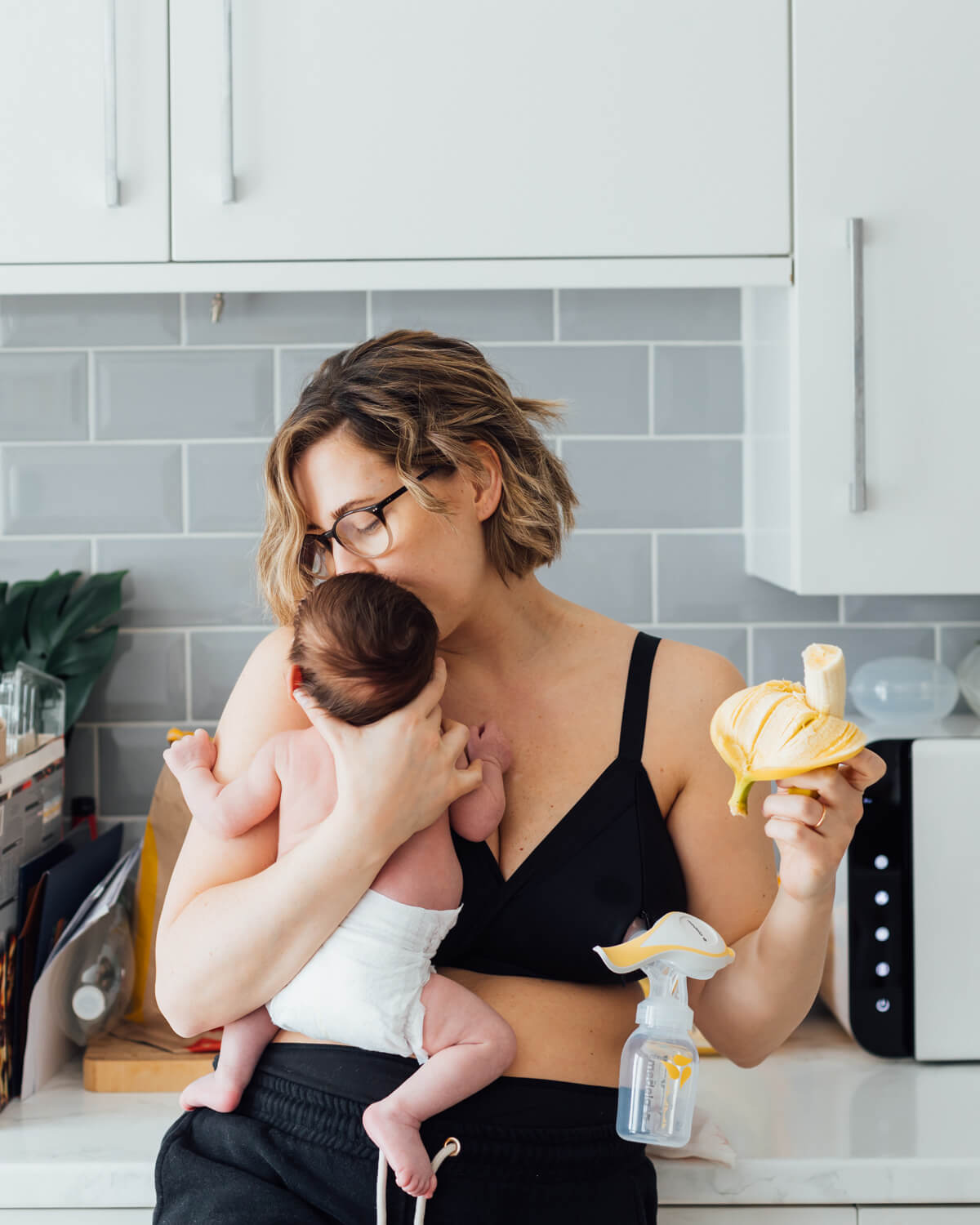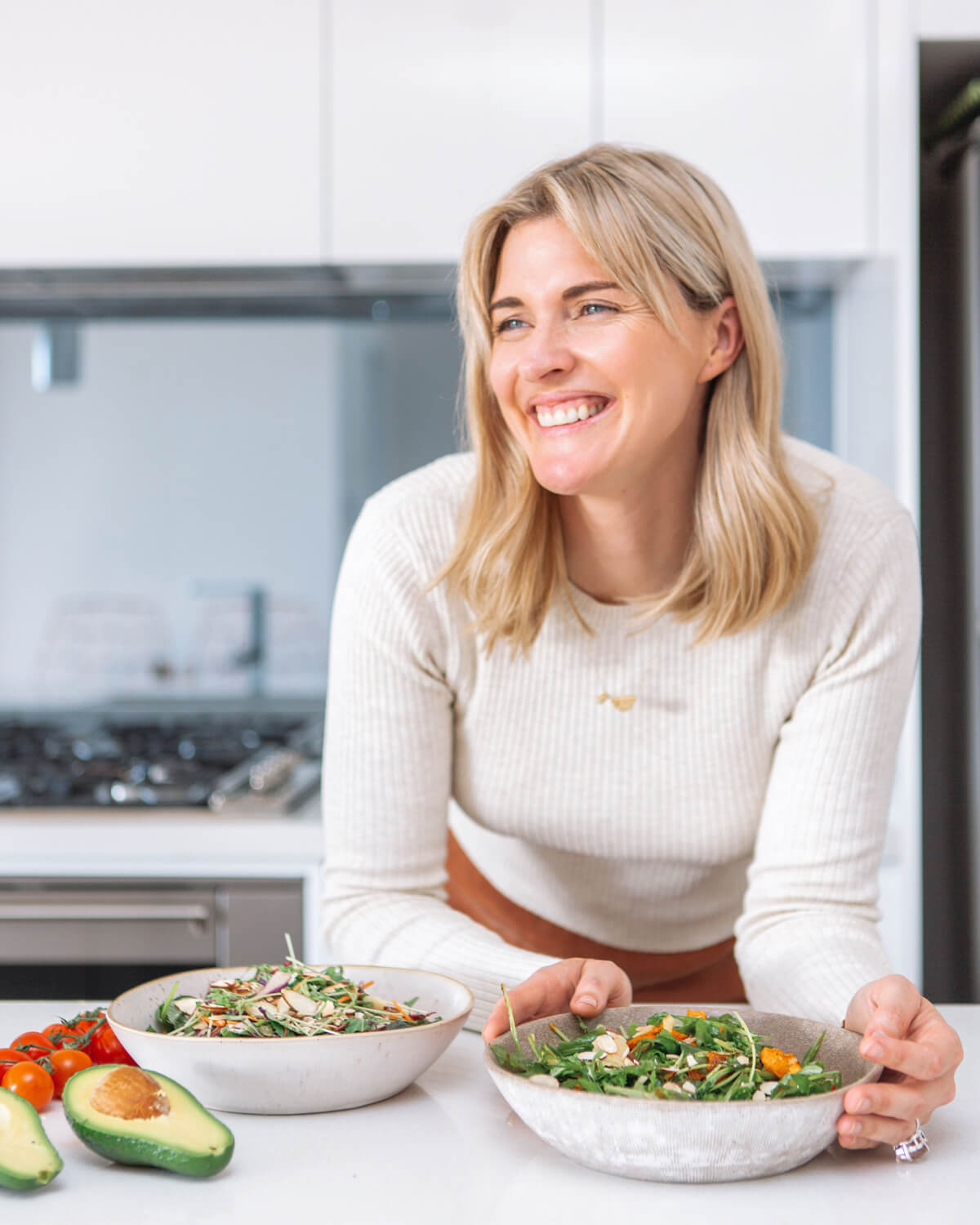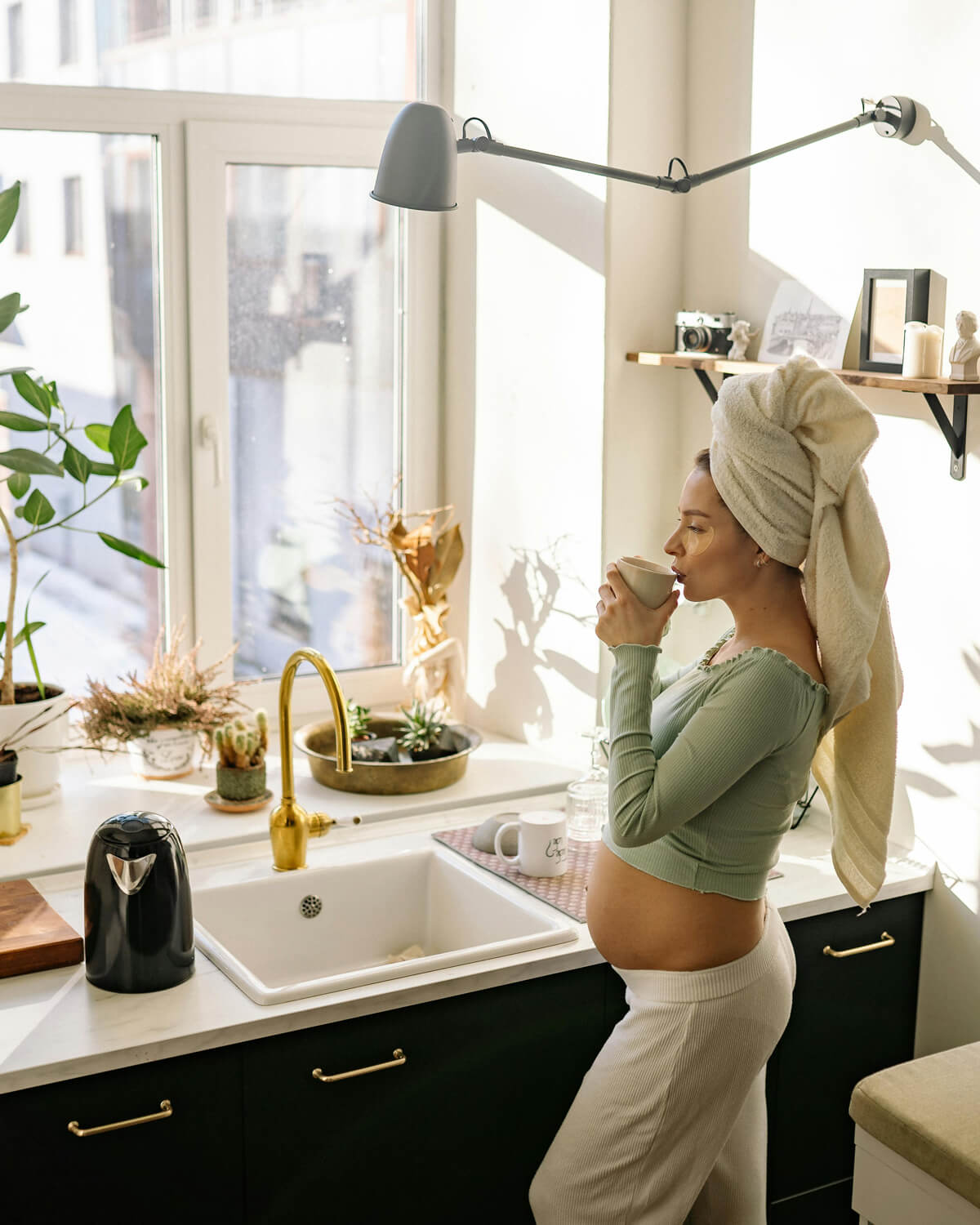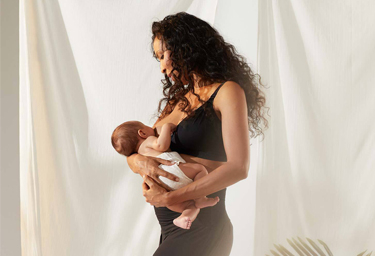As a new mum, it’s so important to do your research and educate yourself, but there’s so much conflicting advice out there that it’s easy to feel overwhelmed. That’s why we’ve teamed up with nutritionist, herbalist, birth doula and mama of four, Anna-Maria.
To kick this exciting collaboration off, we asked her a few questions about her family, career and what self-care means to her.
To start out, we’d love to know a little bit about you. Where are you from?
I am from Copenhagen, Denmark.
Who’s in your family? Names? Ages? Pets welcome too!
My family is now a family of 6, as we have welcomed our fourth baby girl in October 2020. My husband is Kalle, part Swedish and Finnish; he is 35 years old. My firstborn is Kieva; nine years old, and then we have Vilja who is five, Mica three years old and now little Filippa who is just three weeks old. We also have a ragdoll cat named Bobby – and shhh – we may be getting an Australian Shepherd puppy in December, but the kids don’t know this yet. The little puppy was actually born in the same week as Filippa.
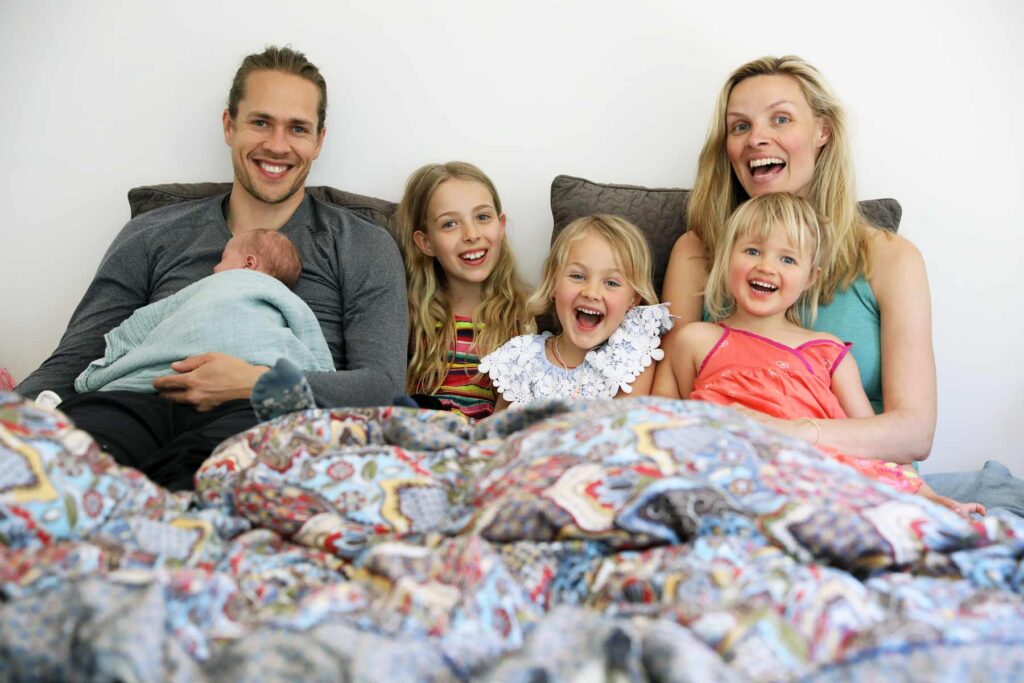
What’s your occupation?
I am a nutritionist, herbalist and birth doula. I specialize in women’s and children’s health. I am also a yoga teacher. I am in the process of becoming a certified lactation counsellor, so in 2021, I will be able to offer more in-depth lactation support for my clients.
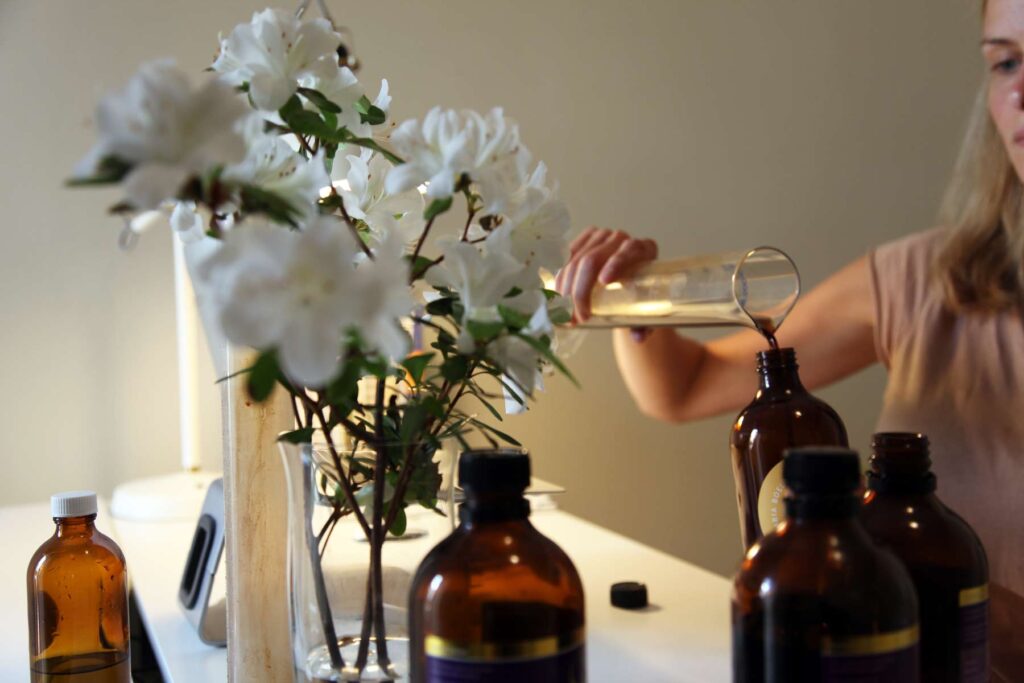
What prompted your interest in these areas?
I became interested in nutrition and herbal medicine when I was travelling and working as a model. I could see that my skin, mindset, body and weight was so easily influenced by what I was (or wasn’t) eating and how I was sleeping. I went through puberty late, and it coincided with the time I began working as a model, so I developed curves, and breasts at a time where I was ‘meant to be’ thin and lanky. This meant I had to rely on my common sense and my nutrition books to stay healthy in an industry that very easily could have derailed my health. So, after I realised the power of my food choices and the exercise I did, I knew I wanted to dive deeper into this field. I have also battled migraines and psoriasis as a teenager and young adult, which were both fixed by nutrition and herbal medicine. After taking time out of my modelling schedule in New York to become a yoga teacher, I realised I wanted to learn more about the body and mind, which then led me to enrol into my nutrition and western herbal medicine studies.
Finally, when I had my first daughter, Kieva, I learned what a doula was. After hiring a doula for the birth of Kieva (that same doula has now attended all four births with me), I knew how incredibly valuable a doula is to a woman and her partner in labour and postpartum. I also saw and experienced first hand how little education, continuous care and support women receive during pregnancy, birth and postpartum – I was grateful that I had done my nutrition and herbal medicine studies as that gave me much more support to help manage my health during pregnancy, preparing for birth and particularly for postpartum in terms of mental health and physical recovery. I then realized that I needed to share this information with other women, and that was how I decided to specialise in the field of pregnancy, birth and infant care.
How did you get your start as a doula? What advice would you give to anyone thinking of pursuing the field?
I was asked by my best friend to be her doula (although I wasn’t a doula then) for the birth of her first baby. I initially told her ‘no’ and to get a certified doula. Still, she insisted, and I decided then and there to enrol and become a certified doula – I went through the certification process during her pregnancy, so by the time her baby (my goddaughter) was born I had been fully certified. She was the first birth I attended. From there, I was so excited to do more doula work, so I set up a simple website, and to my delight, I was swamped with enquiries pretty much immediately. Now I am nearing 100 births, and despite the unforgiving work hours, I love this work – it’s very special!
My advice to anyone exploring this line of work is: Know that a doula’s work hours are incredibly unpredictable, you could be attending a birth for 36 hours straight and be called to attend a birth with as little as one or two hours notice. So, the critical thing to know is how you cope with this type of demand – are you able to ‘up and leave’ your family or your potential other work demands at the drop of a hat? I would also advise that you attend a few births for free or at a very low fee to experience what it is like – from start to finish birth will take you through ups and downs and typically a few highly emotional peaks. You need to know how you respond to seeing a birth unfold (very different from giving birth yourself), how you can step in and support a woman and her partner when emotions are running high (sometimes very high) whilst also thinking three steps ahead. And finally, I strongly recommend you do further studies, the certification process covers the basic requirements to become a doula, but in my opinion, it is far from all-encompassing. It is ideal to have a mentor to help you navigate and process intense situations, especially at a hospital where a doula can be seen as someone who is ‘just in the way’. Learn how to debrief births both for the client but also for yourself. A doula’s work is equally physically demanding as it is emotionally demanding – being able to provide support without burning out is essential if you want to thrive in this type of work.
So, get certified, and explore the many workshops that are available to deepen your knowledge afterwards, plan for self-care and have someone or several people you can lean on for support and advice – try out a few births (this is part of your certification process) to see how you feel and cope during these before you put yourself out in the world.
What does a typical work day for you look like? How much has Covid changed your routine?
I have two days per week where I do consultations for women and couples, both clinic consults for my nutrition clients and some doula meetings. These days tend to be very long, from 8am-9pm. I find this works best to accommodate my clients but also for me to get into the flow of my work. I then spend 4 hours on checking in and visiting doula clients for pre and postnatal care in their home on Sunday afternoons and a weekday. Of course, when a birth happens, that takes priority, and off I go!
Covid caused me to take all my consultations and meetings online, so mostly it has changed in the way that I work solely from home via Zoom and FaceTime. I had to offer virtual birth doula services as most hospitals would not allow doulas to attend births, so I have ‘attended’ several births via FaceTime. Quite a challenge, but better than not being there for my clients at all. I also got a lot busier with more enquiries, so I went from working two days per week to 4 days per week.
So, why should mamas consider a doula as part of their birth team?
A woman should consider a doula if she wants to ensure she has the best care possible. The one thing that is missing in the classic hospital birth care is continuity of care. Something proved to be the most essential in a woman, her baby, and partner’s wellbeing on both the physical and mental aspects. Most mamas hire me because they want to be more informed about their birth choices, they want to have someone, non-medical, who knows them well in the labour room – apart from her partner, she could end up with everyone else being strangers on the day of the birth. Women who hire me want a non-judgemental professional to debrief their experience, their fears, explore their birth and care options and to ask questions. Additionally, I experience a higher grade consciousness in the room when a woman has a doula present – it’s a way to ensure a woman’s wishes and requests are respected and achieved. Lastly, a doula is with the woman during pregnancy, during birth and in the postpartum – that is the red thread that ties it all together for most women and couples, the continuous care and connection. Without it, women report that they feel lost in the system, worries accumulate, and emotional as well as physical needs can be overlooked, which sadly can have poor outcomes for mother and infant bonding and put significant stress and strain on the couple if they don’t have someone they trust and value to reach out to for help and advice.
You’re also a certified yoga instructor. Do you have a favourite pregnancy yoga pose?
Yes, extended side angle pose (Utthita Parsvakonasan) modified with the bottom elbow resting on the thigh. It is excellent in pregnancy as it helps create space in the side torso, which is getting more and more compromised as the belly grows. It also works on strengthening the legs and when done correctly, realigns the posture and spine.
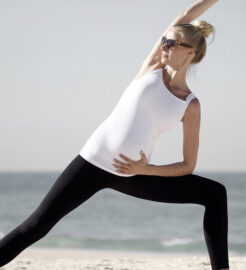
How do you find time for yourself everyday, and because I know fellow mothers will be dying to know, how much time are you able to put aside each day?
As a mother of four children and running my business, I have to go with the flow – meaning, some days I get more time than other days to focus on myself. Having said that, I have a few valuable, non-negotiable, daily things I do. I meditate for 20 minutes morning and afternoon/evening. This is my de-stress time, a way to avoid stress accumulating in my body. I also aim to be in nature for even a few minutes every day – some days that can be a long walk, other days it is a quick cup of tea outside without disturbance (aka phones and kids). A yoga class is my third essential me-time, and ideally, I get a few classes during the week. The way to make these three essentials happen is to wake up before my children. This makes a big difference. A quiet home, the sunrise, meditation and getting a start to the day before the house wakes up sets me up for a successful day with a much brighter mindset.
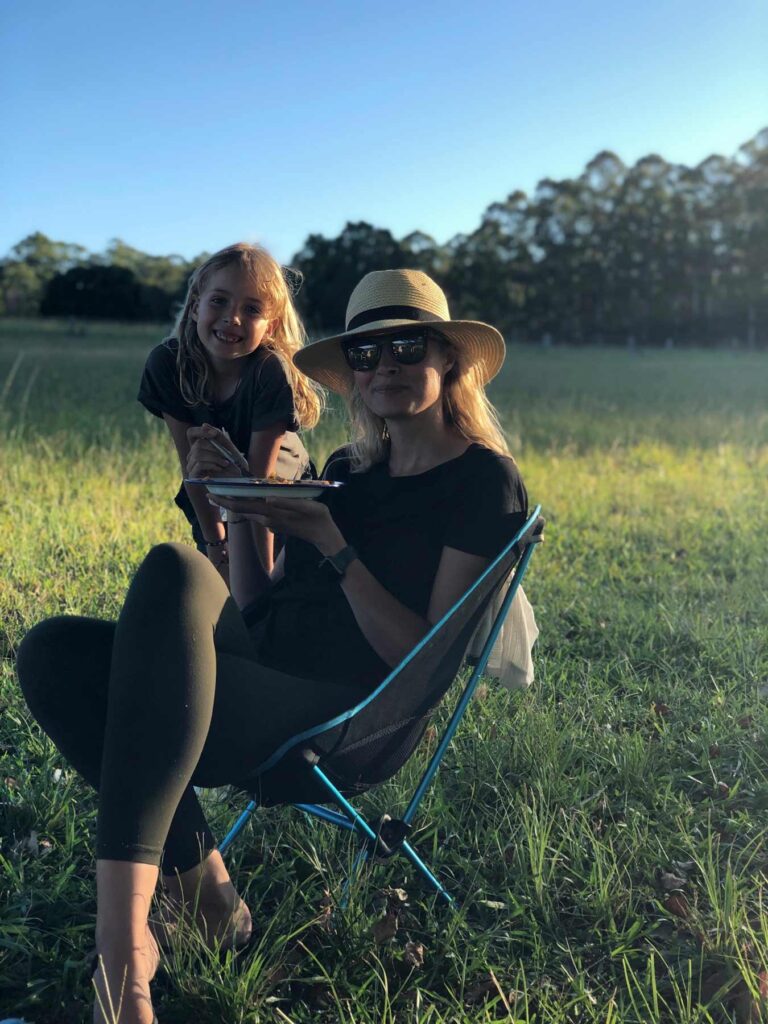
What makes you infinitely happy?
Knowing there is more to life than what meets the eye. To be of service – being on a life mission to improve health care for women and children.
The smiles on my children’s faces and the love, joy and respect I have with my husband.
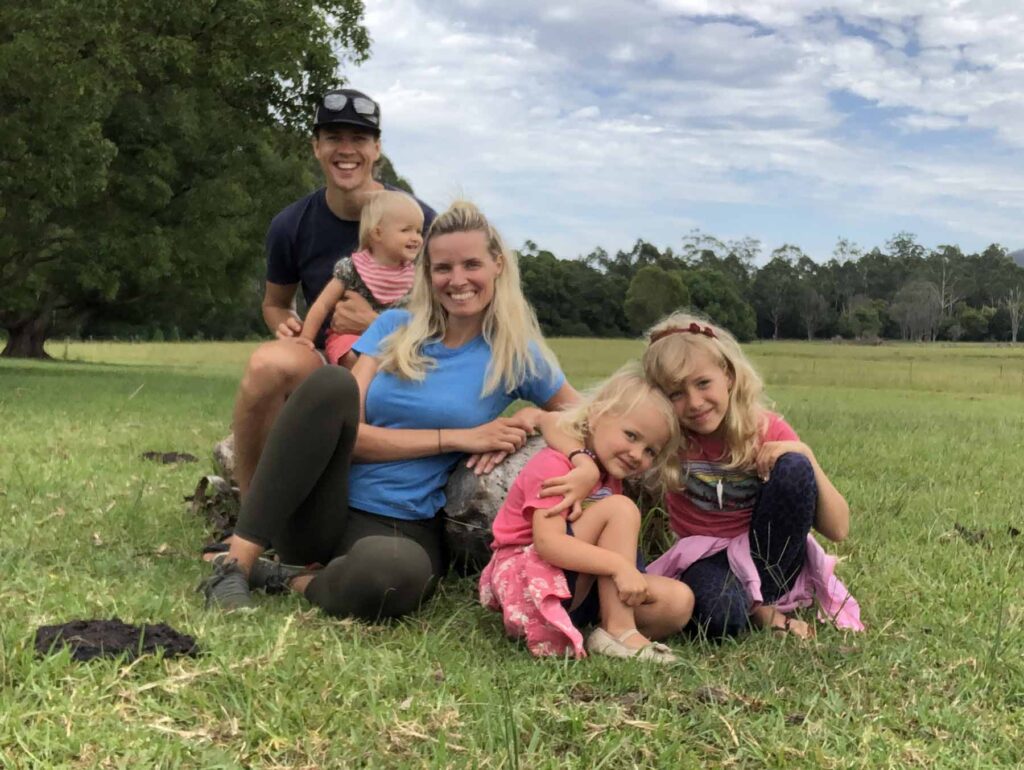
What’s the best piece of advice you’ve ever received?
Don’t try to please and love everyone, instead, stay true to yourself and stick to your core values and integrity, and everything will align perfectly.
What are 4 things you can’t live without?
Life without my four kids would be a lot less fun and colourful!
As mums, finding ‘me’ time to connect to ourselves is incredibly important. Do you have any advice or practices that you’d recommend to mums short on time, that can easily be incorporated into their daily lives?
Meditate. If you genuinely want to connect to yourself, and I highly recommend you do, the best way is to be in silence and meditate, even just for a few minutes every day. I recommend Vedic meditation which is a style of well-researched manta-meditation. The Insight Timer app and 1 Giant Mind app can be a great start.
Finding out what is essential to your wellbeing (because it differs slightly from woman to woman) is vital for you long term, that way you can plan and allocate me-time accordingly. Typically for mother’s, doing less will help us become more aware of one-self. We tend to be busy, saying yes to too many things (meetings, play dates, coffee dates) which takes away from proper self-care and creates a lot of mental noise. So, if you need to feel more grounded and be more in tune with yourself, do less externally and spend more time internally. This can be a 5-10 minute eyes-closed body scan to release any tension you may hold and deepen your breath.
Lastly, as mentioned before, wake up before your partner and children. Yes, even at 5am. If you go to bed between 9-10pm and don’t spend your evening time watching tv or on your iPhone/iPad, that is. It is an illusion that me-time is watching tv or checking social media. You will gain so much more from an early night and a quiet early morning.
For any women, and mums in particular, looking to improve their health and wellbeing, what steps would you recommend they take?
Number one is to start making all your food at home. For some, this can feel overwhelming, so just start by adding more whole foods to your diet week by week. Health is achieved by eating more and more whole foods until 80%, or more, of your food, is made at home from chemical-free produce, organic when possible.
Drink enough water – 2 litres daily, or more if it’s summer and you’re breastfeeding. It’s an uphill battle for your body’s physiological processes to function optimally if you’re not well hydrated. Everything slows down even if you are just a little dehydrated – from mental energy production to detoxification – your body requires water for every step that has to take place. And there is a lot.
Spend time daily, or weekly, in nature. This, along with meditation, can calm down your nervous system (aka stress) dramatically in a few minutes. Stress being the big elephant in the room when it comes to women’s wellbeing.
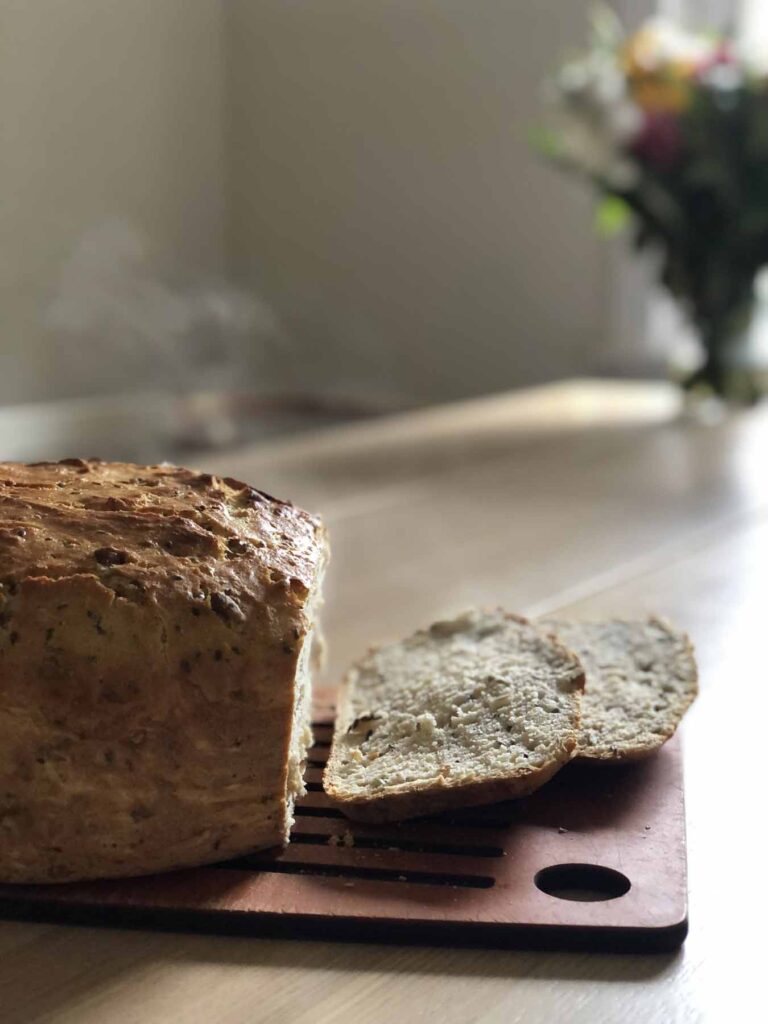
Where can we find out more about you?
My website: www.annamaria.com.au
Instagram: @annamaria_boelskov
Facebook: @annamarianutritionistherbalistdoula
My podcast, Mumspire: https://www.annamaria.com.au/mumspire









